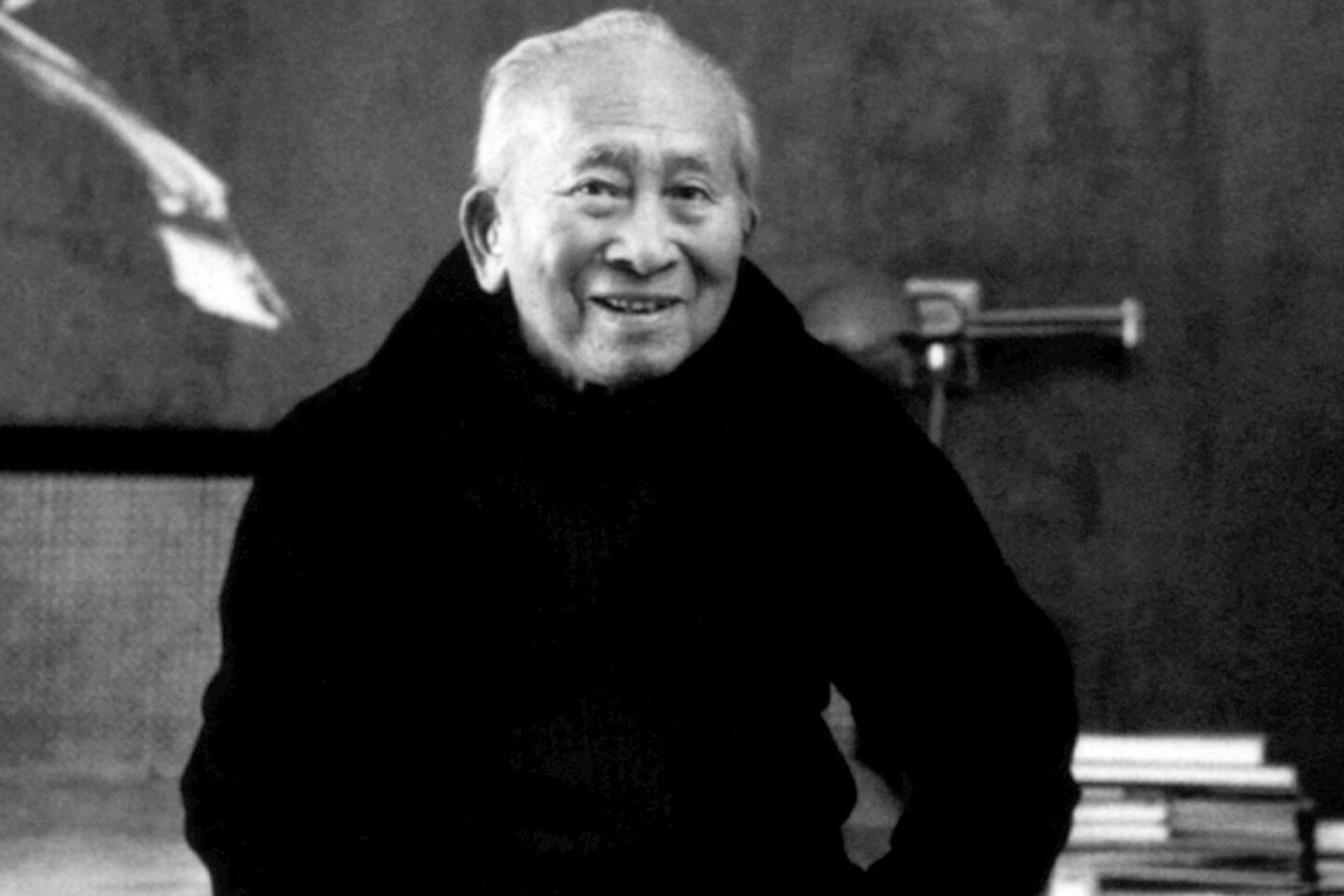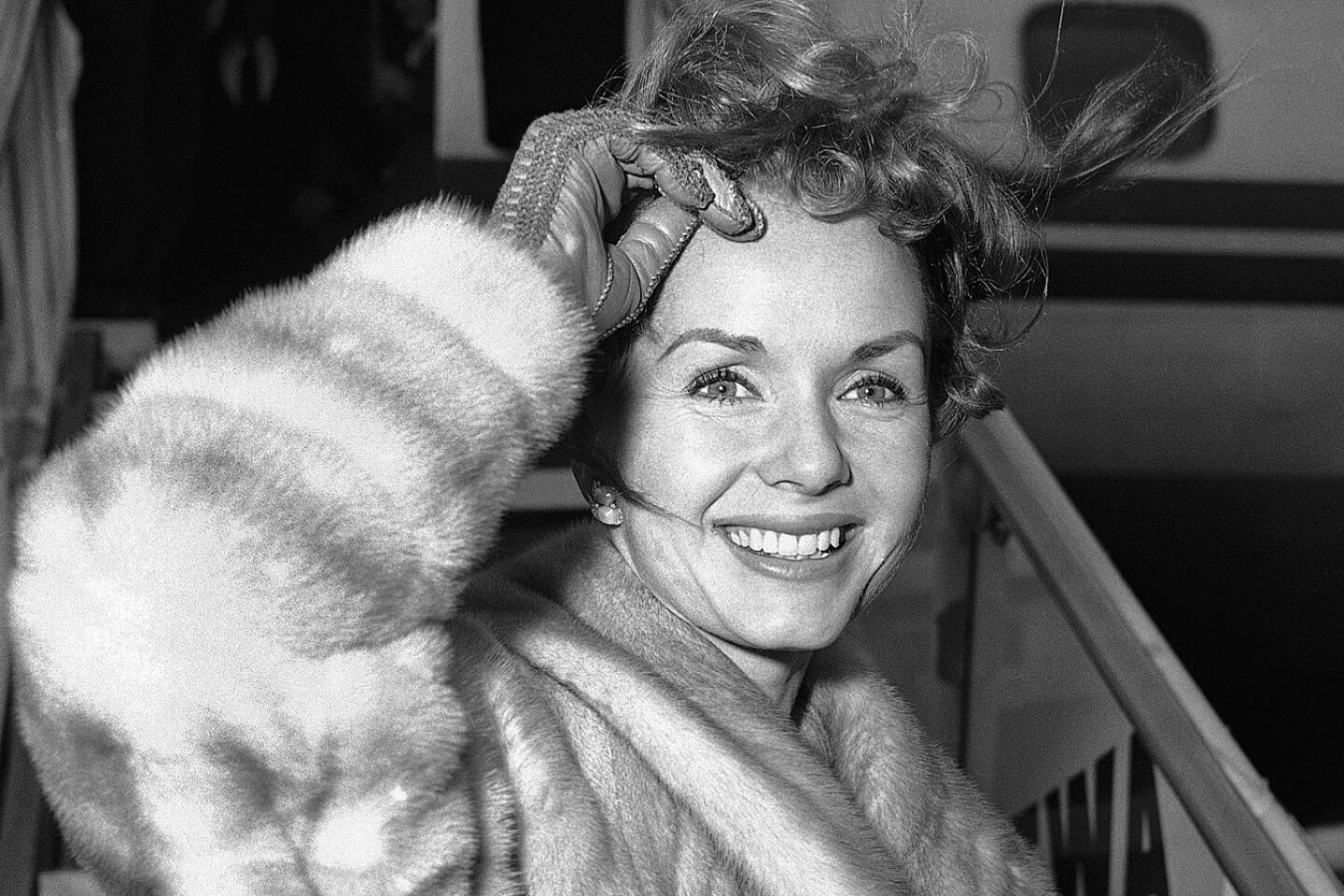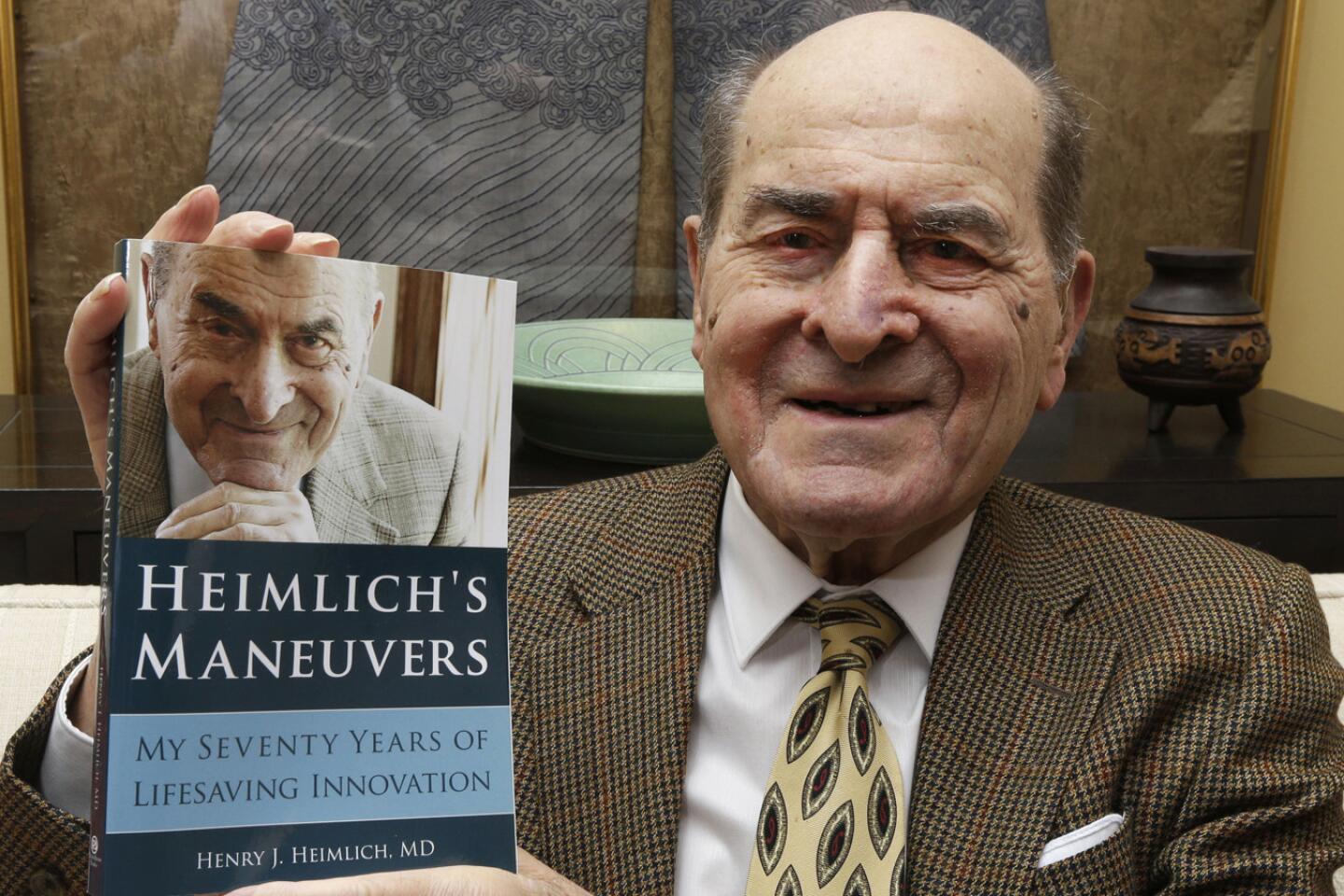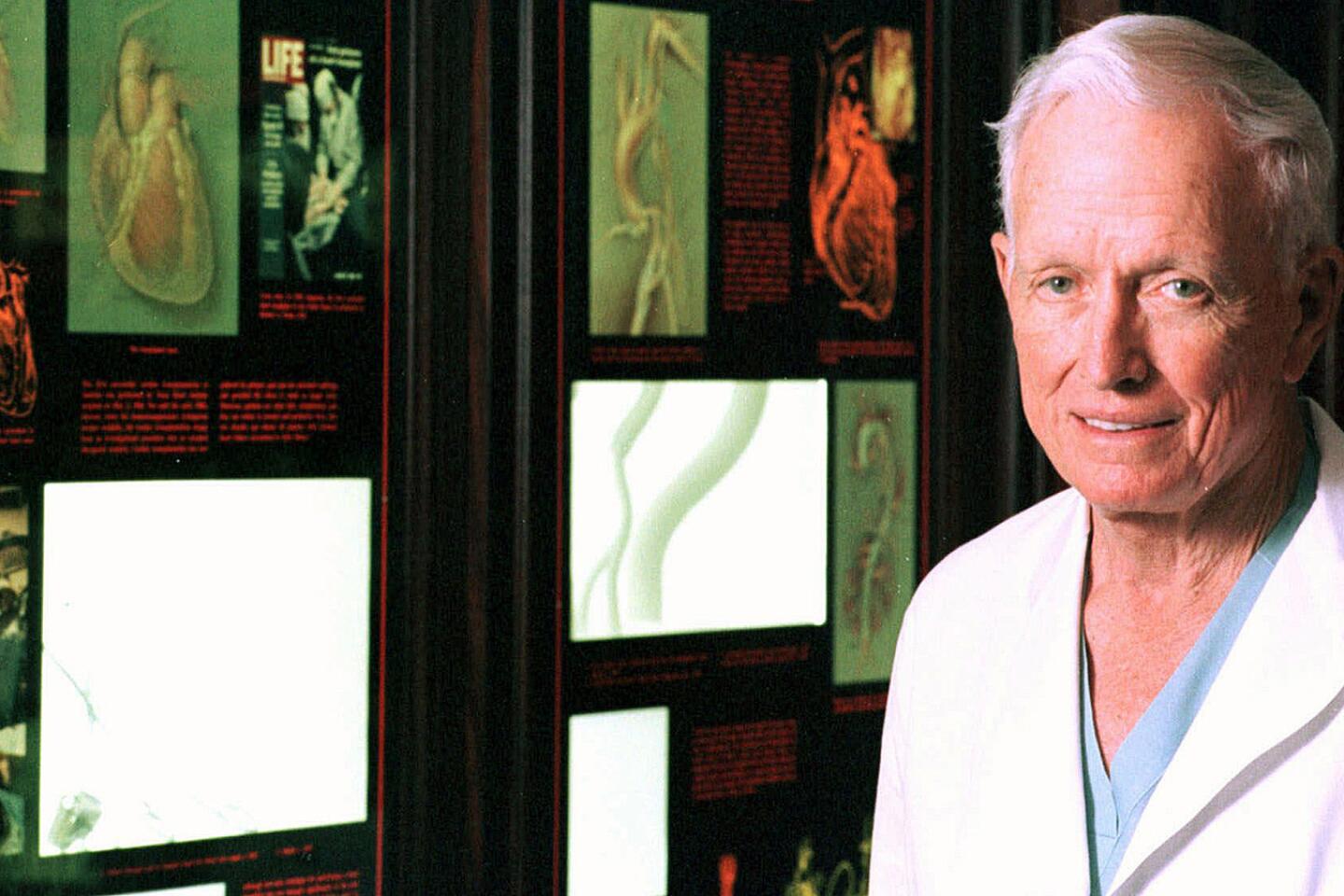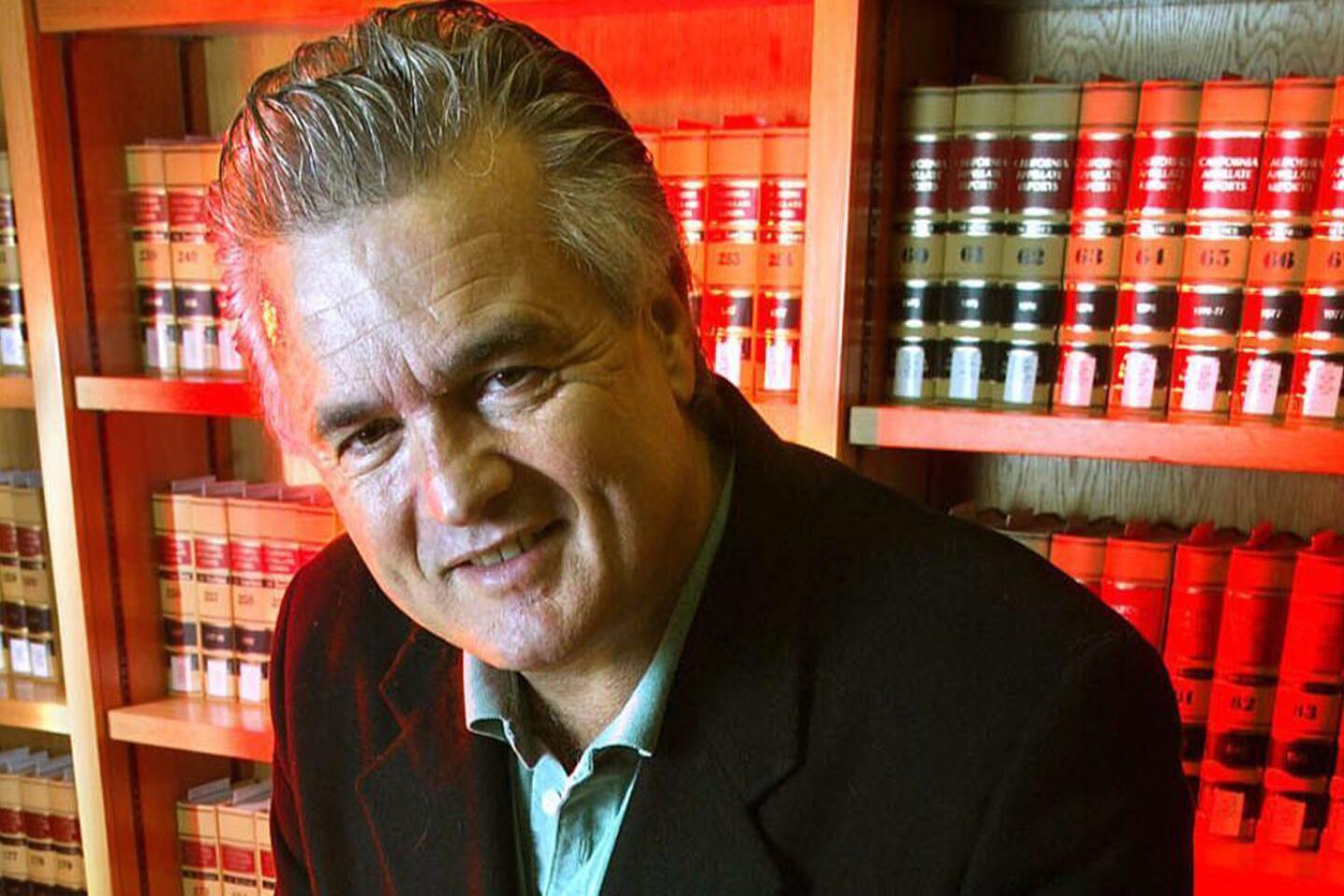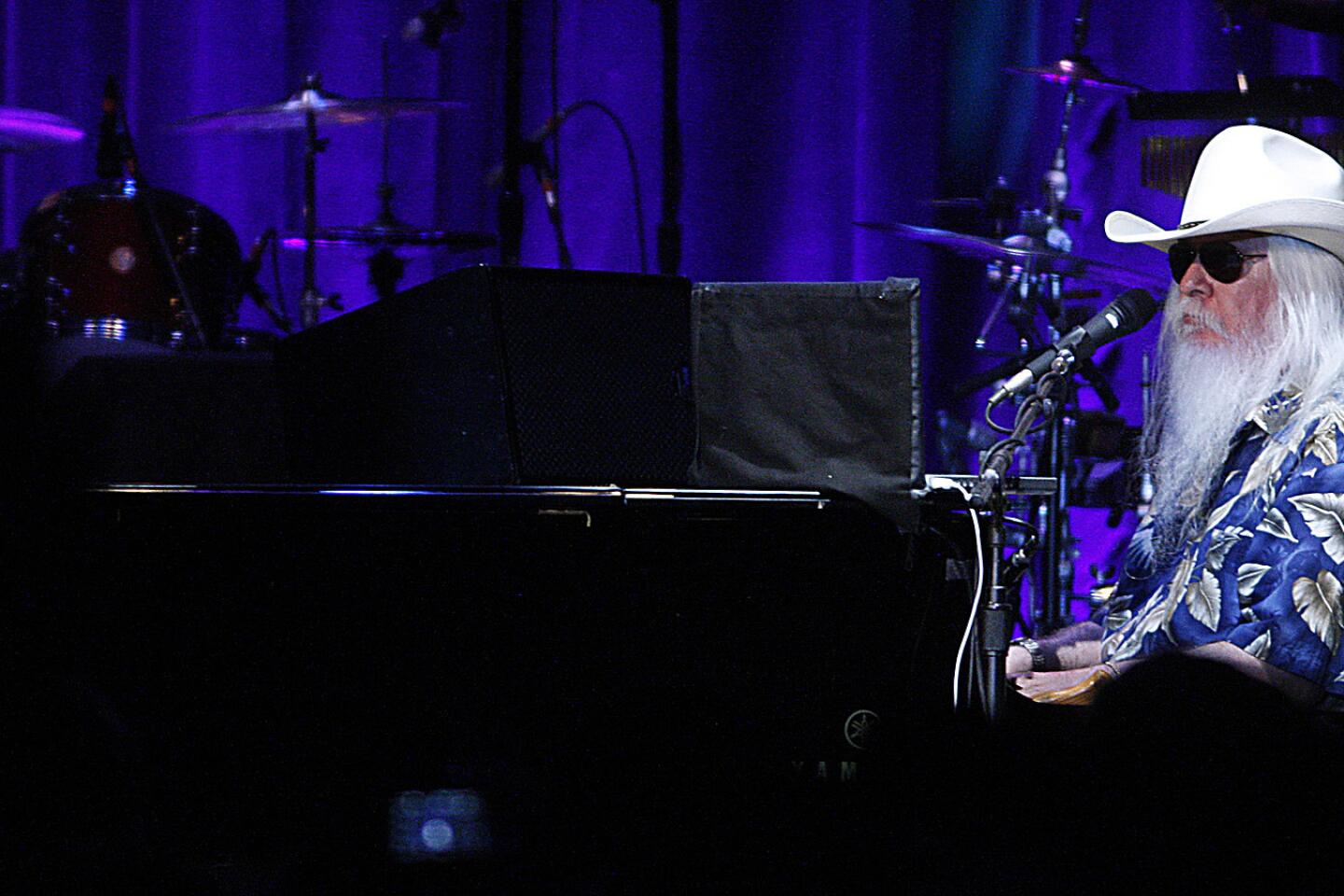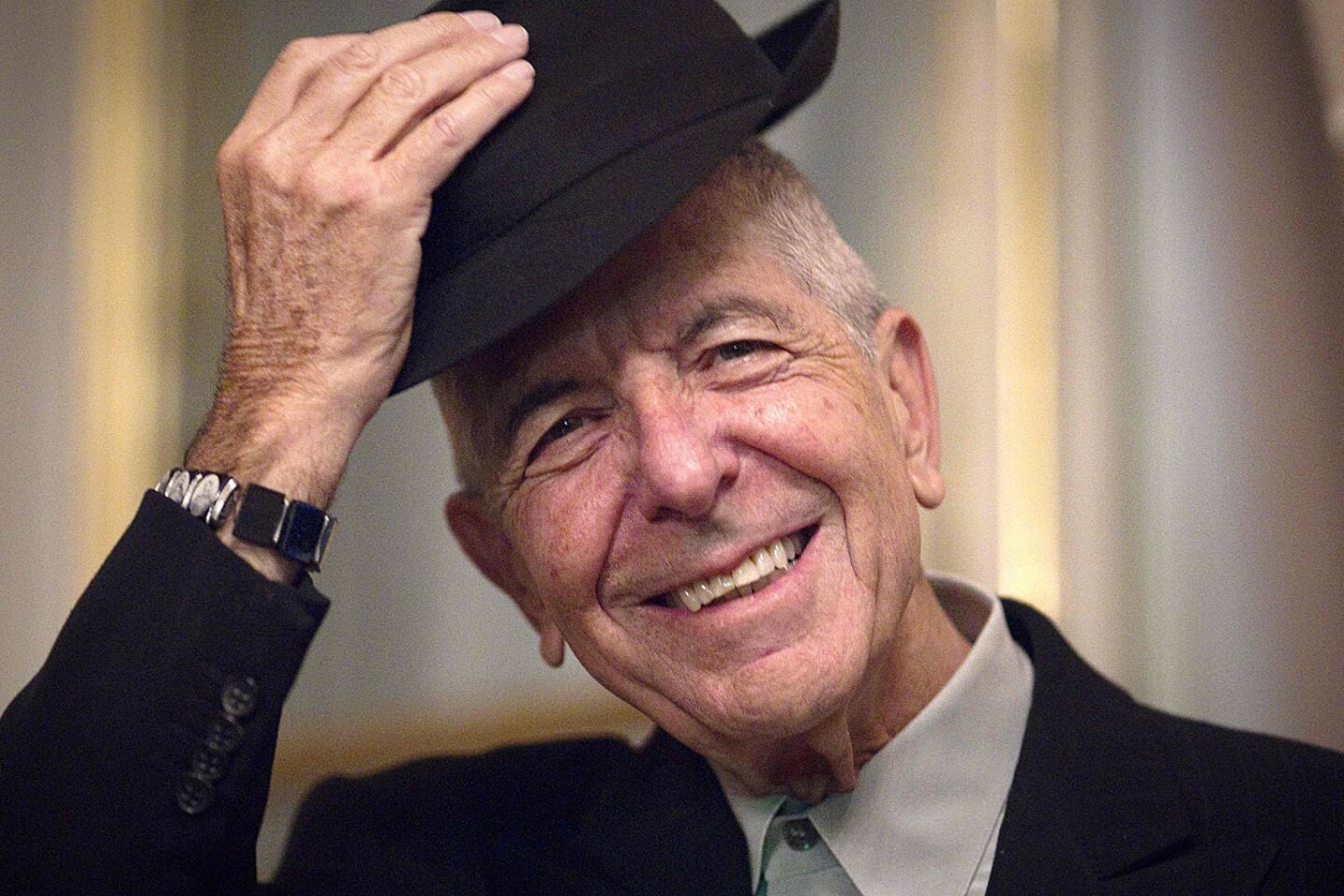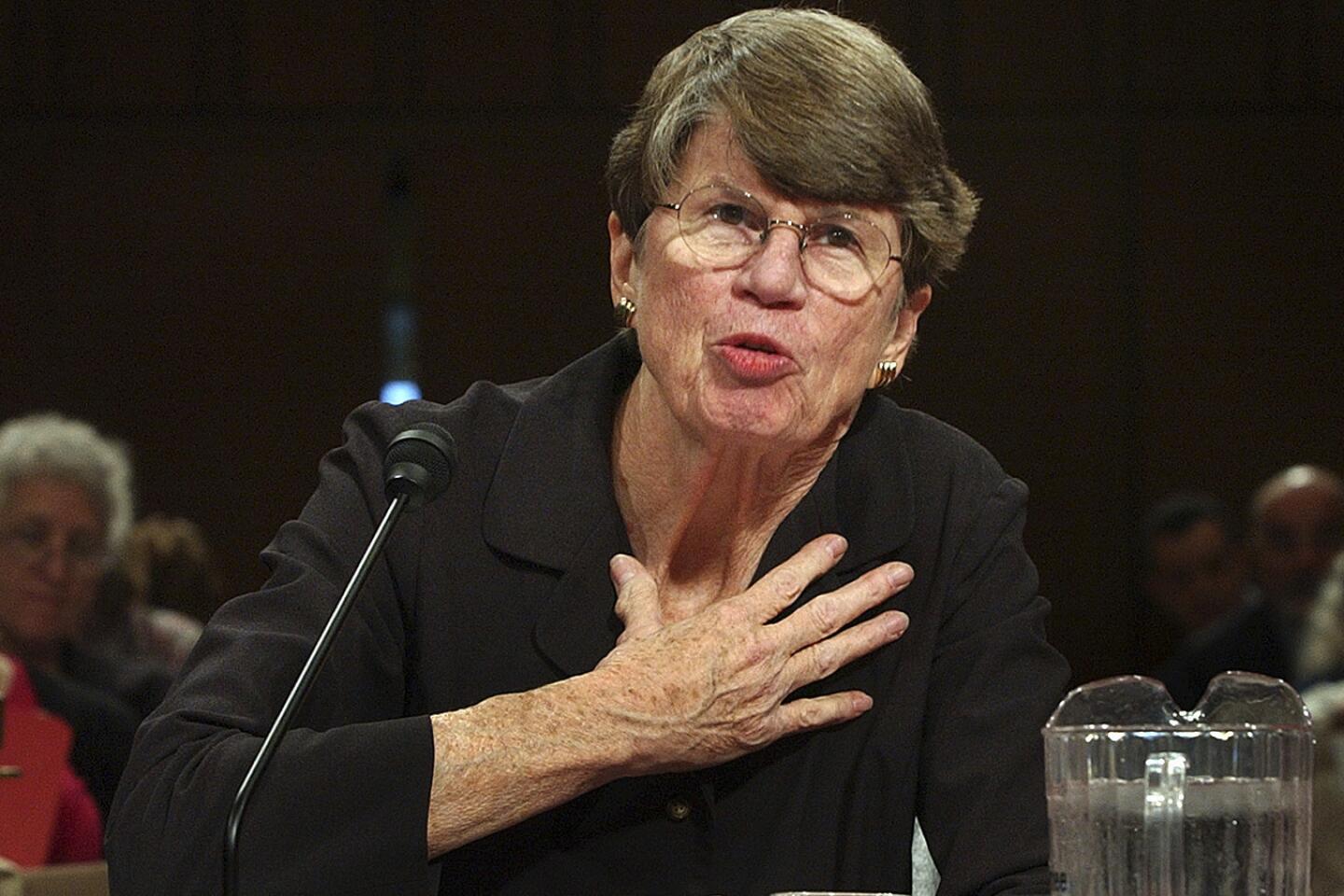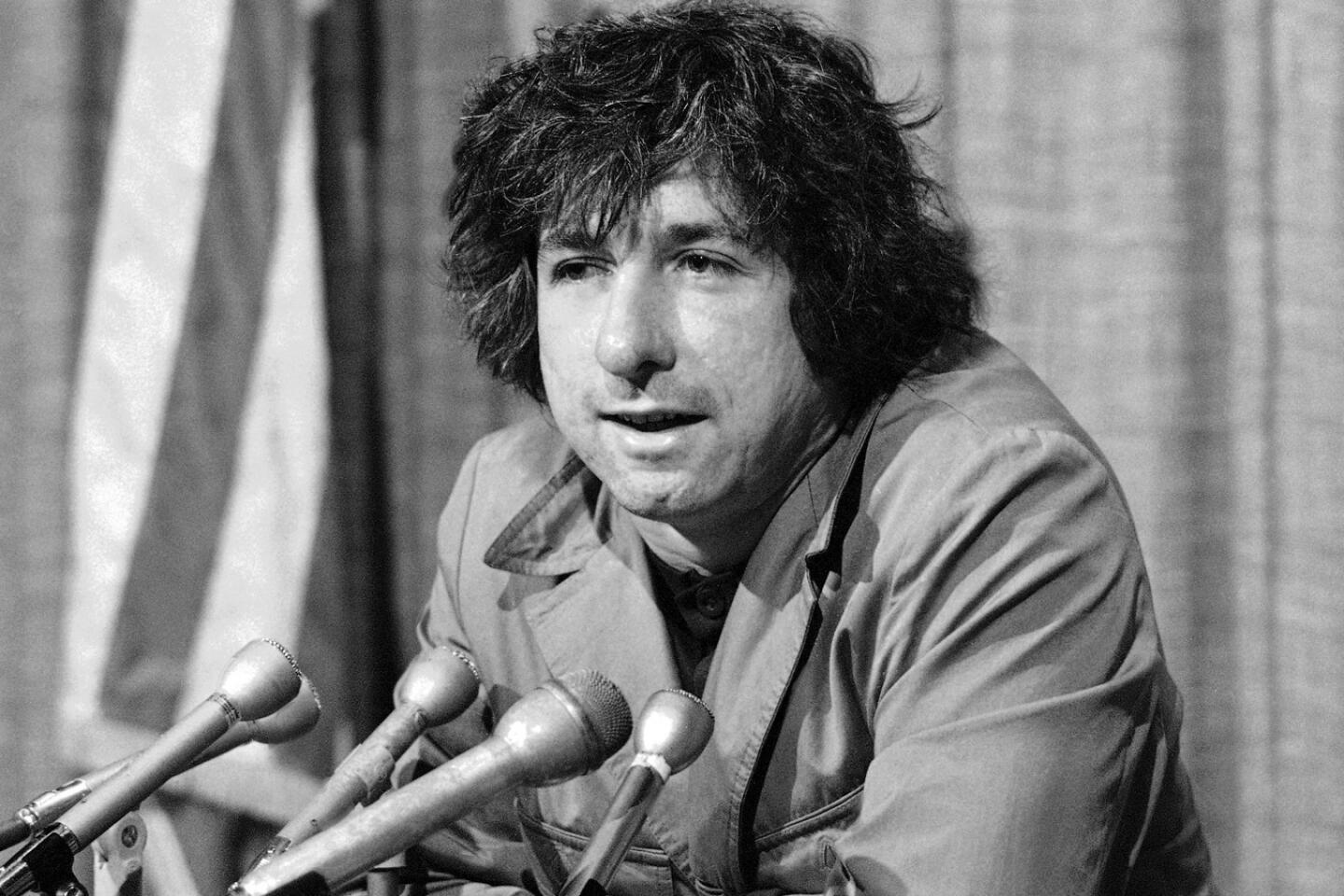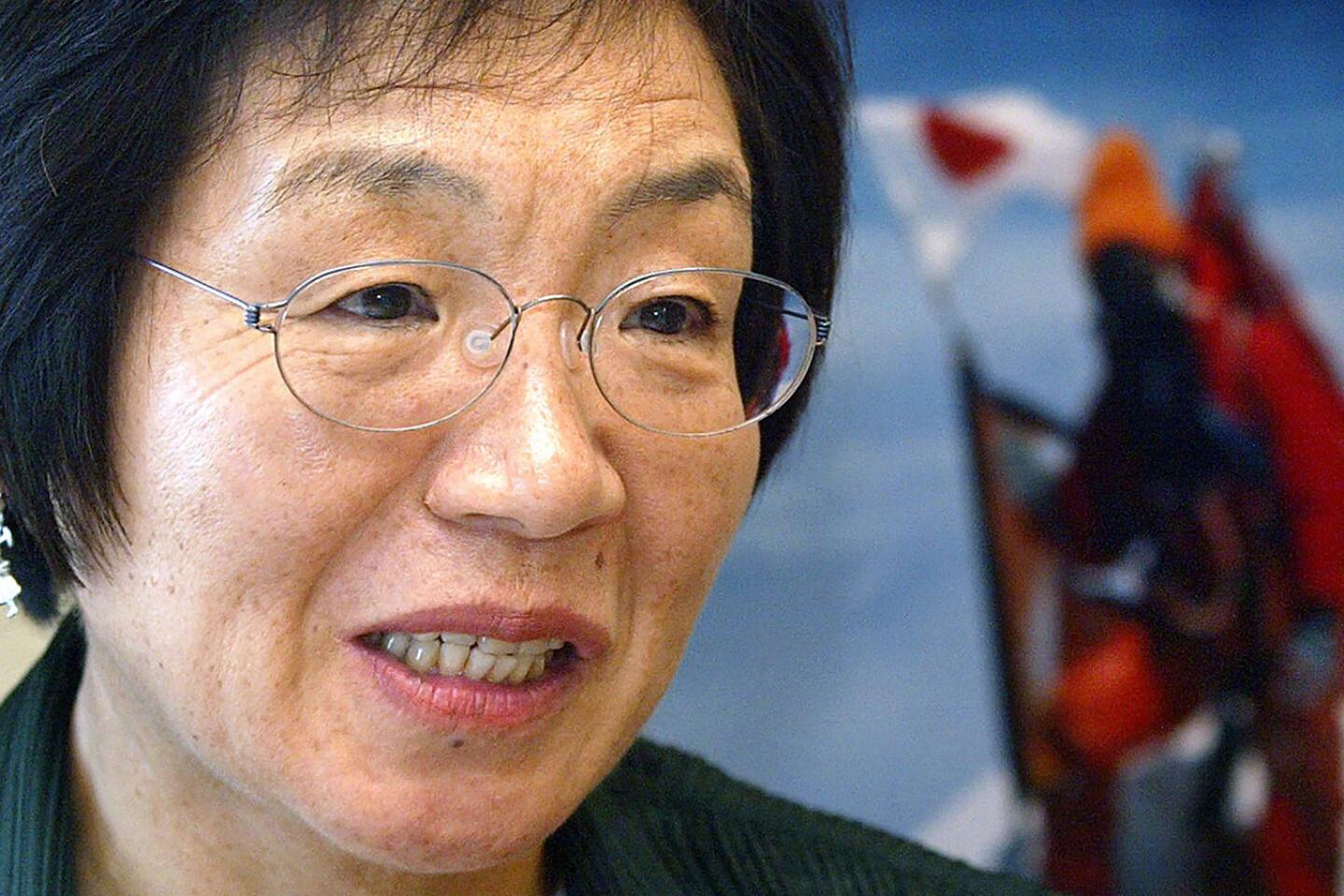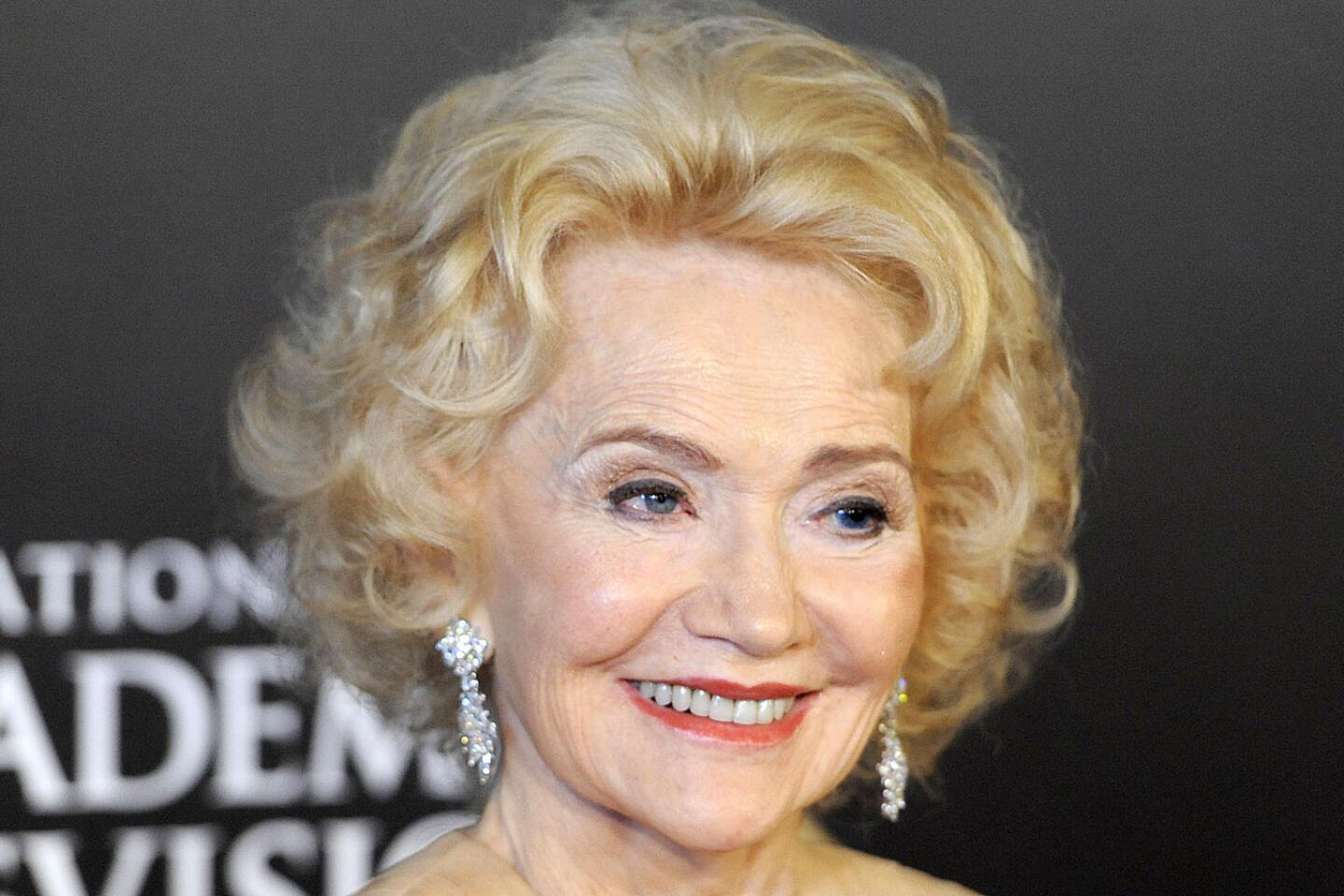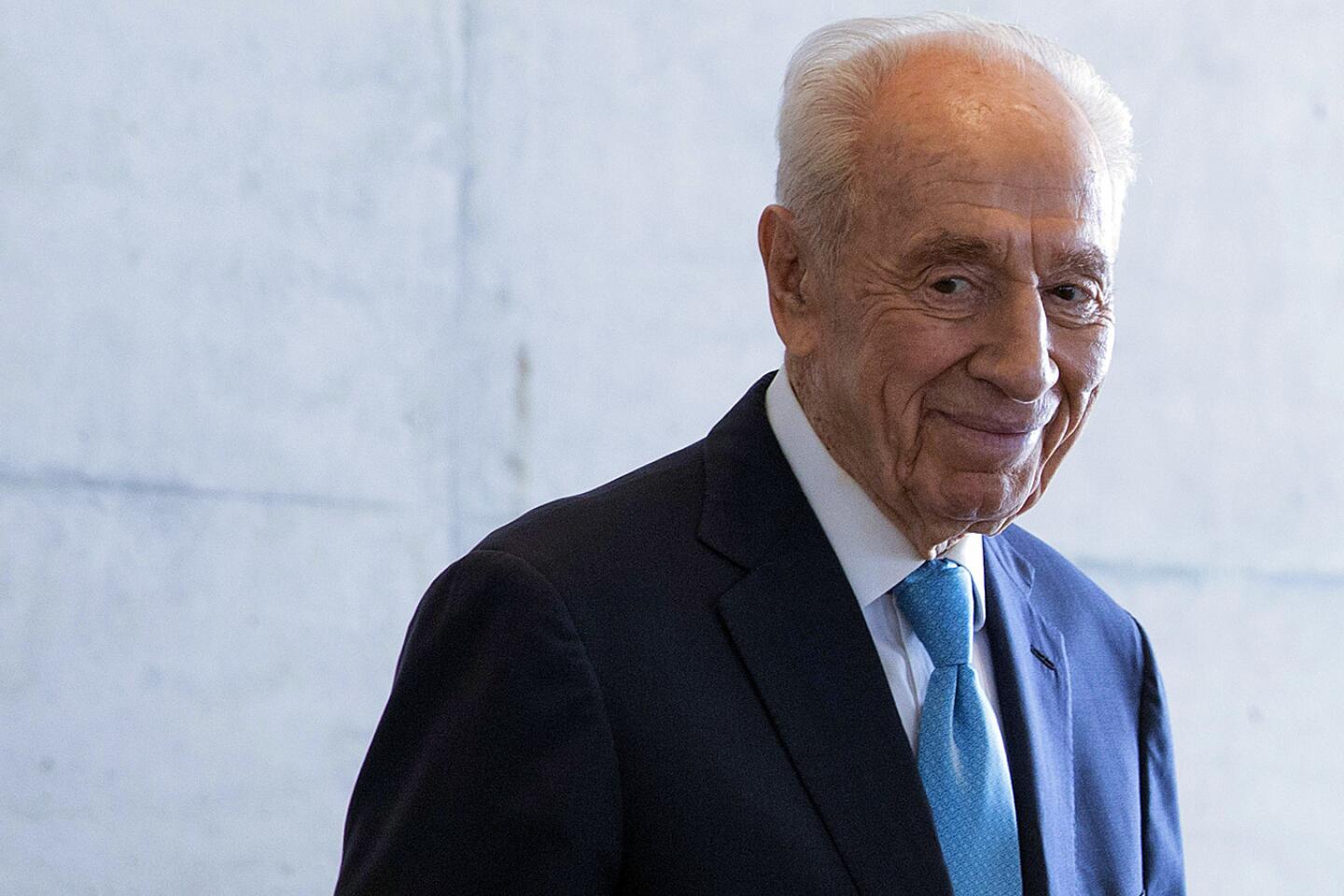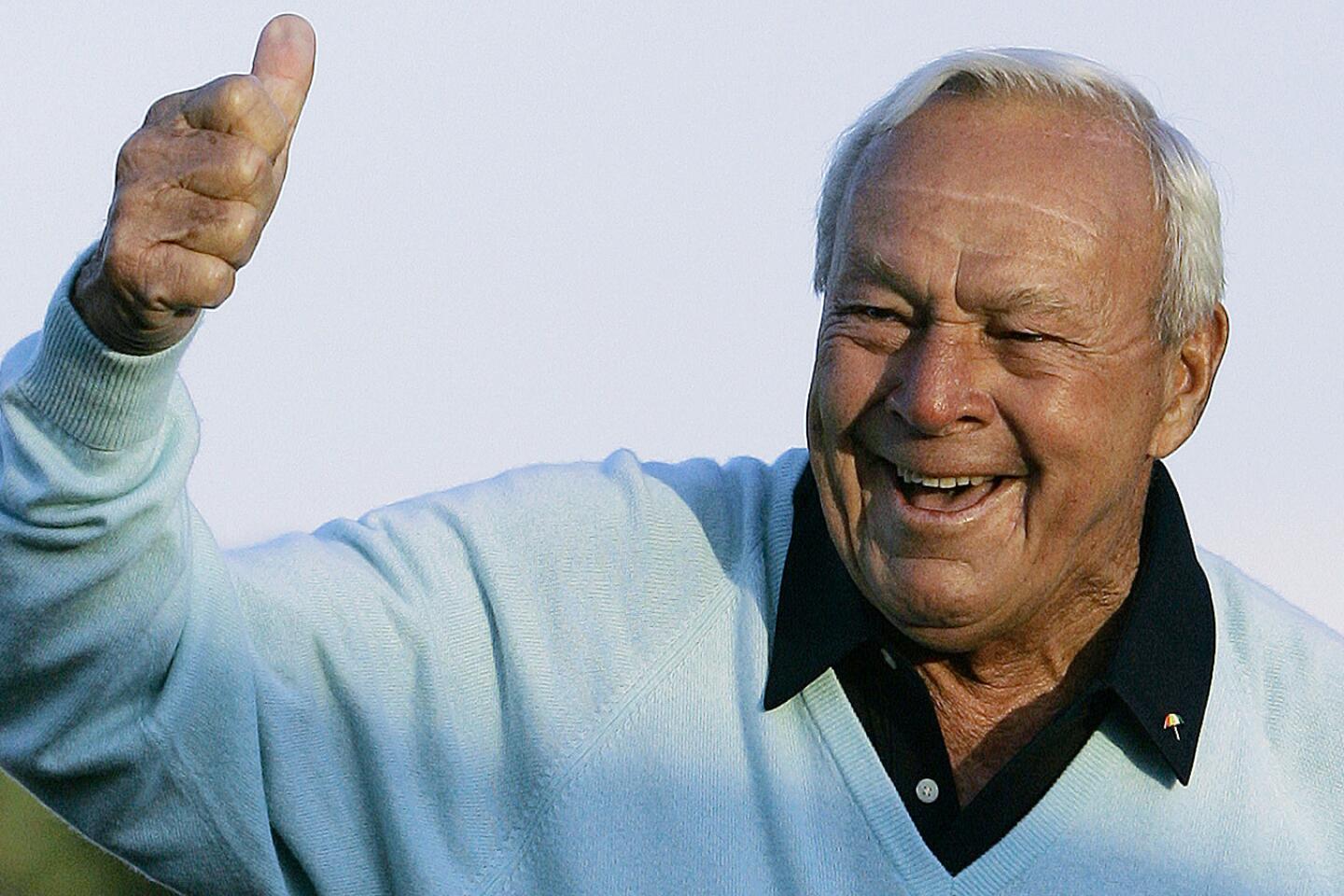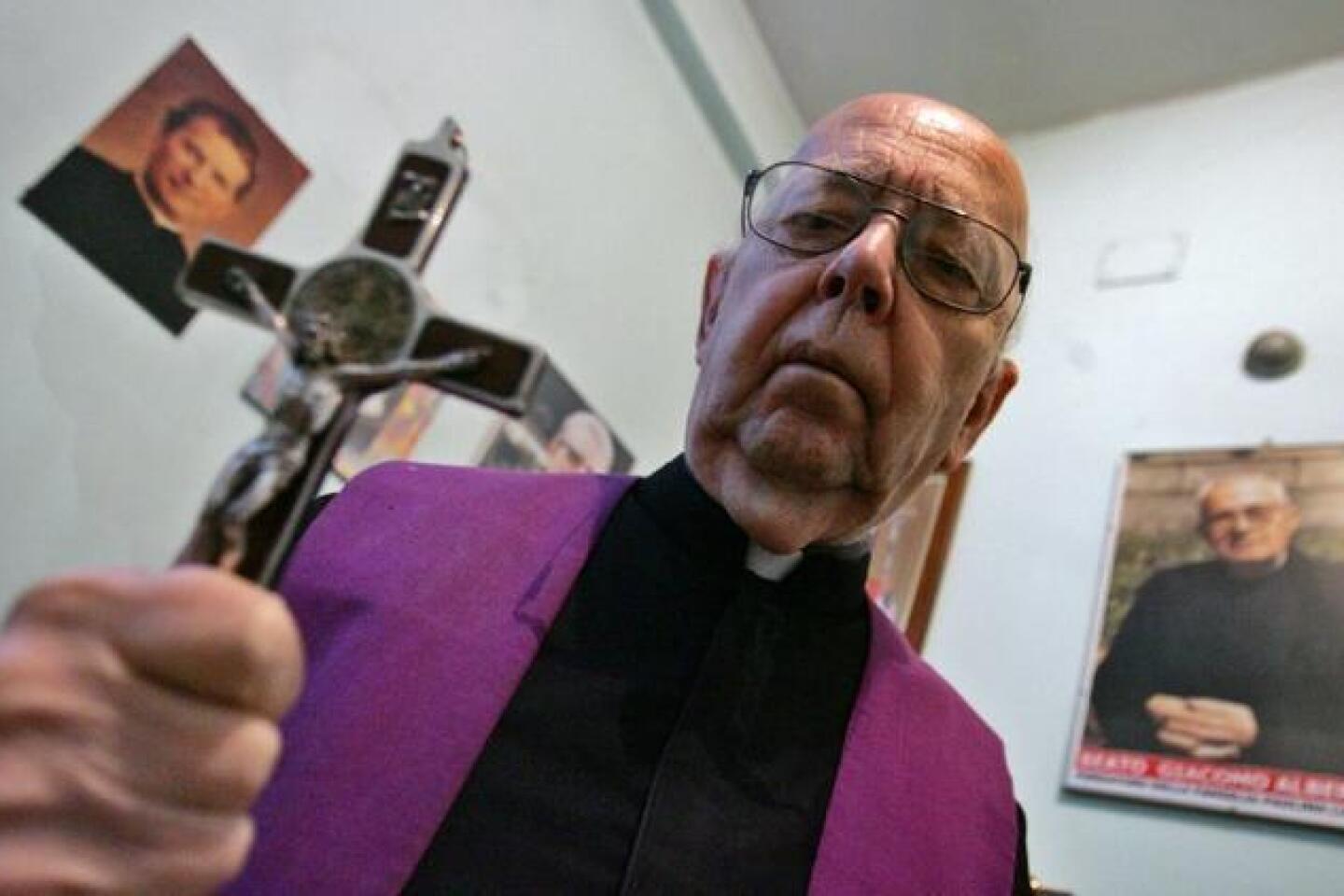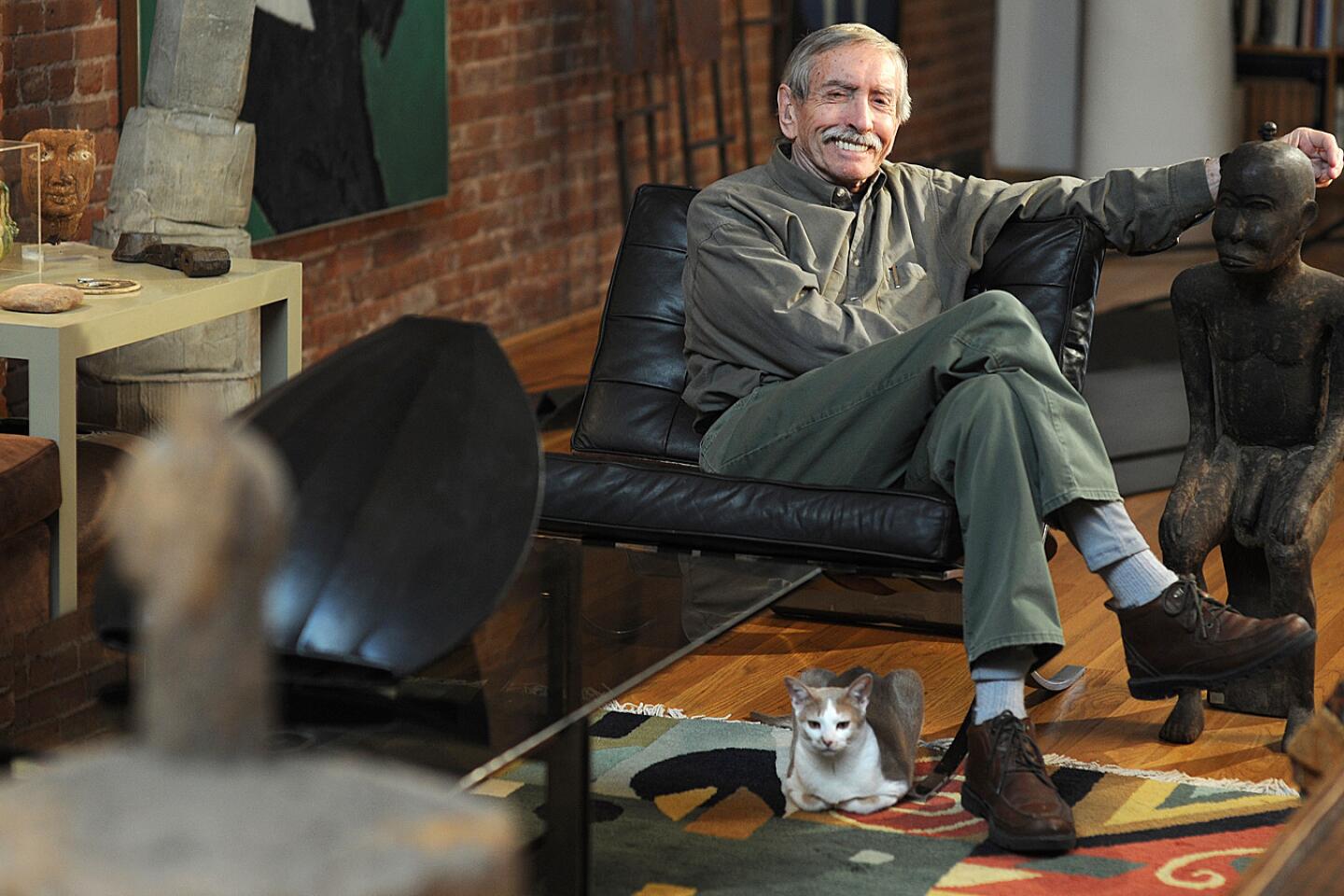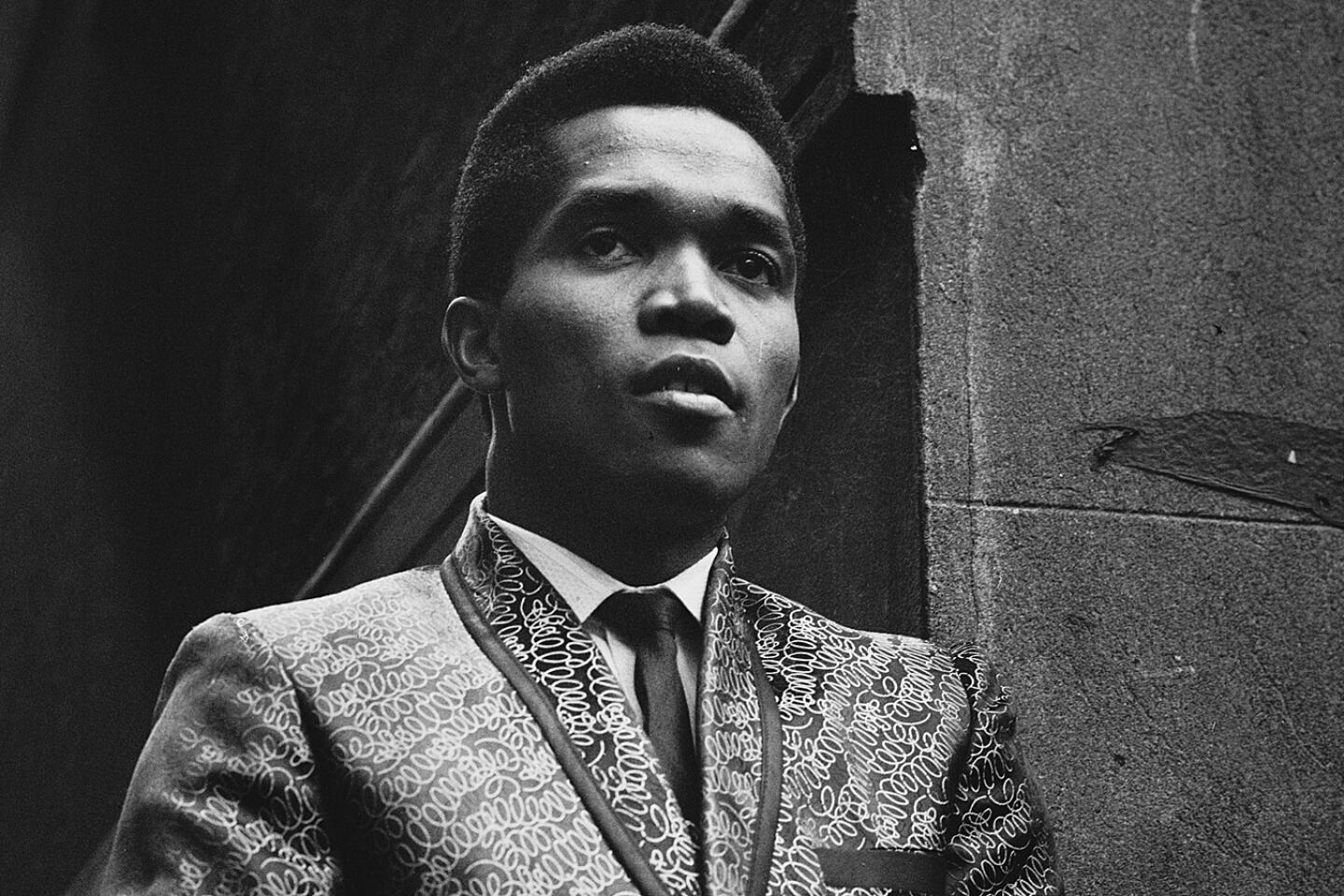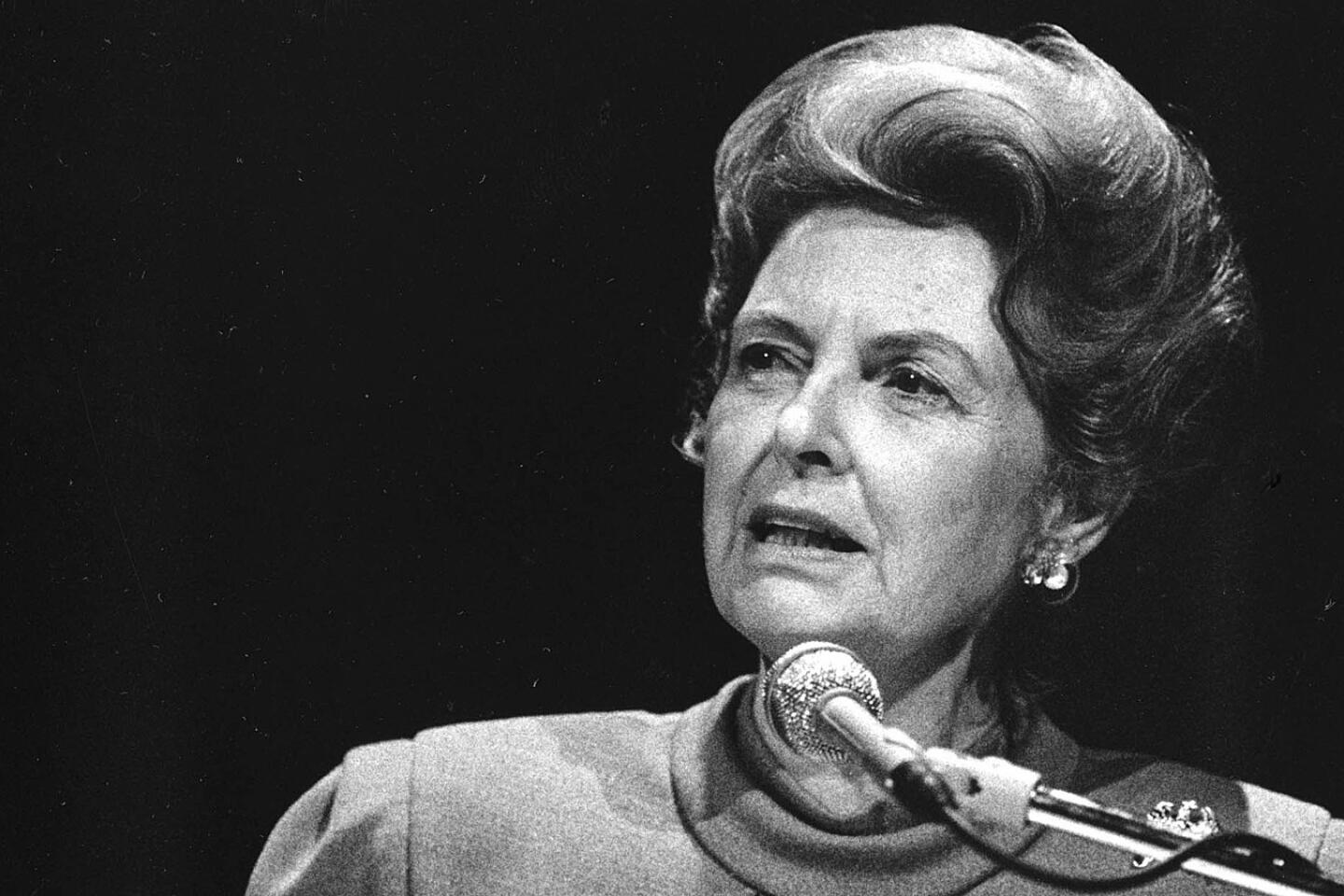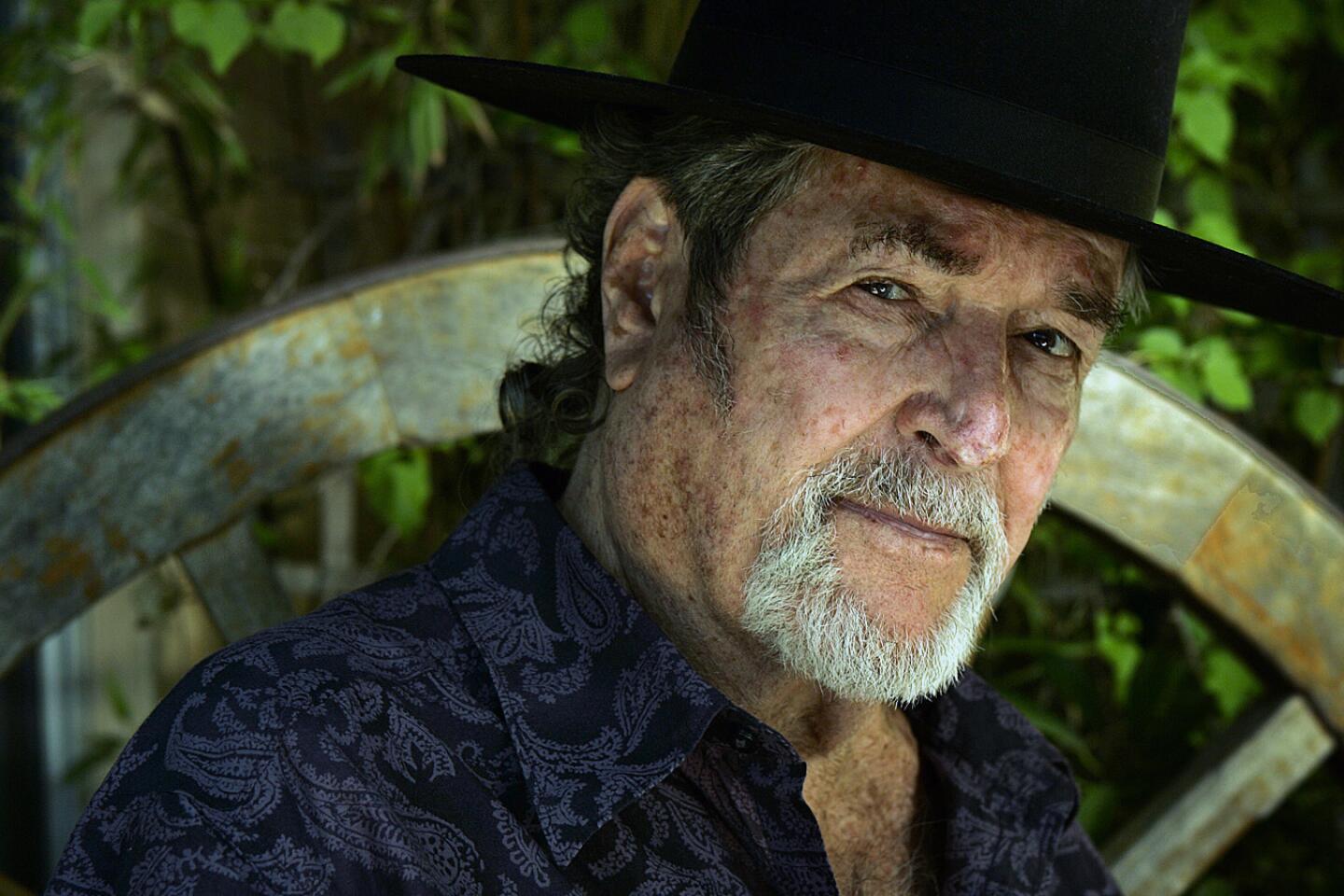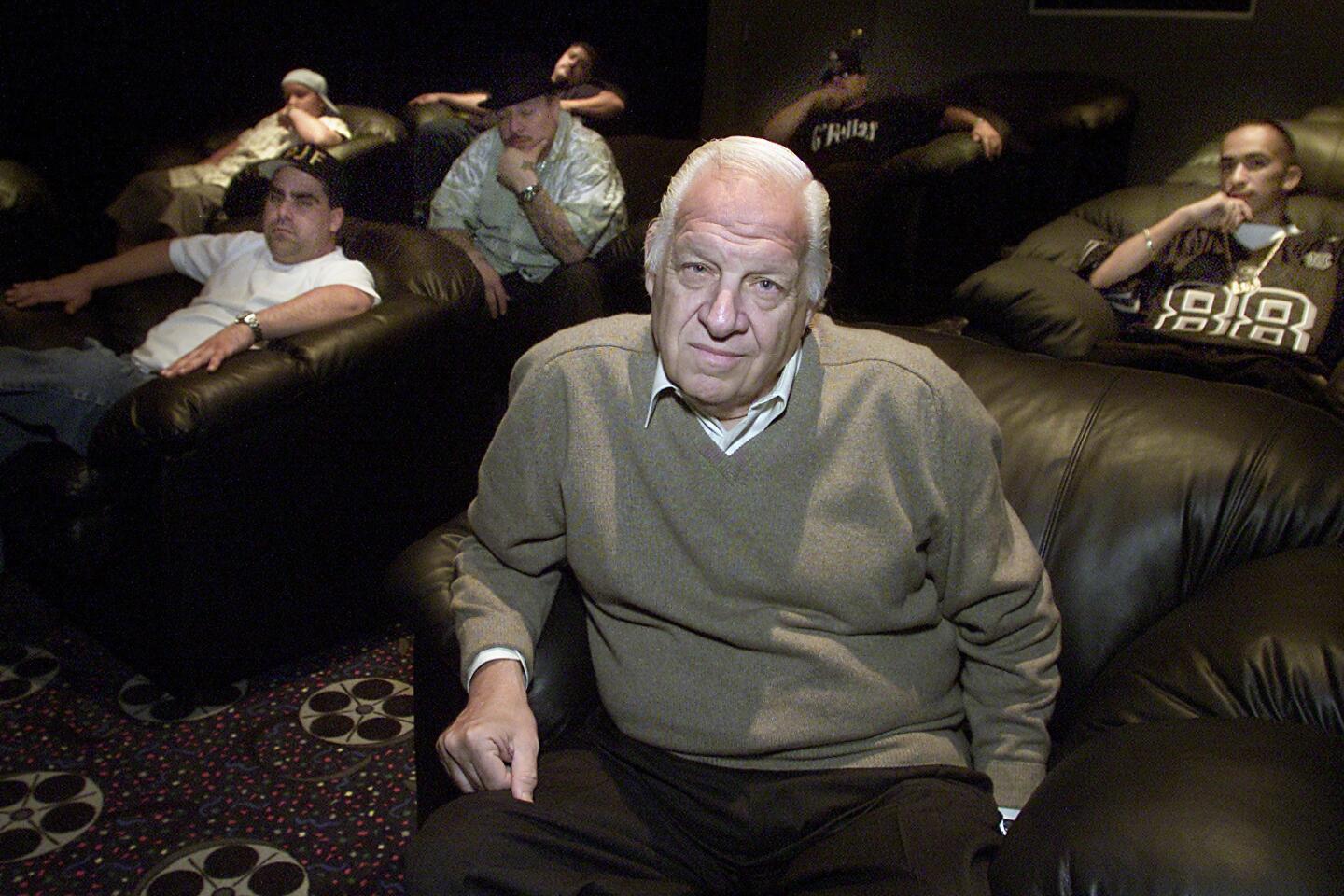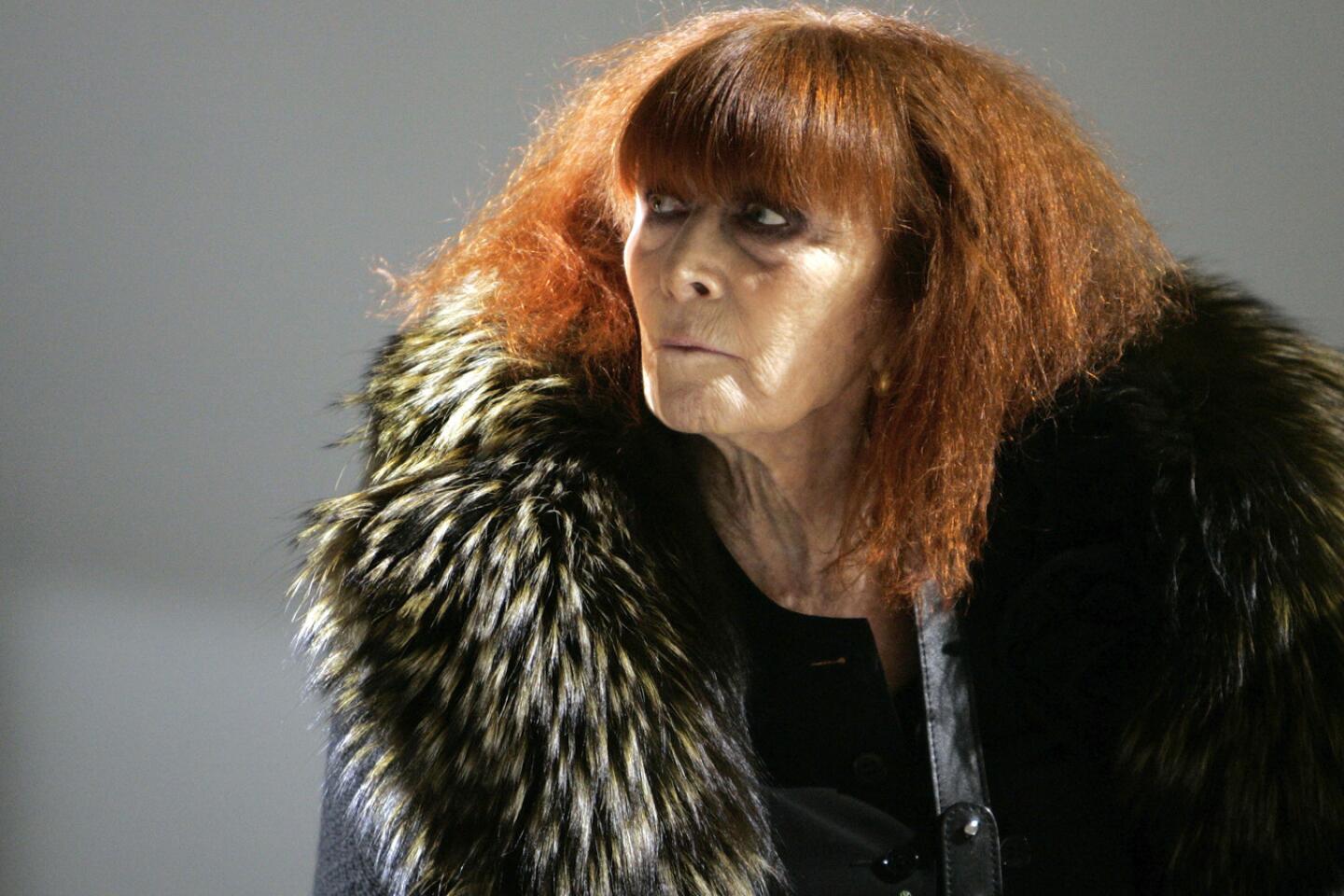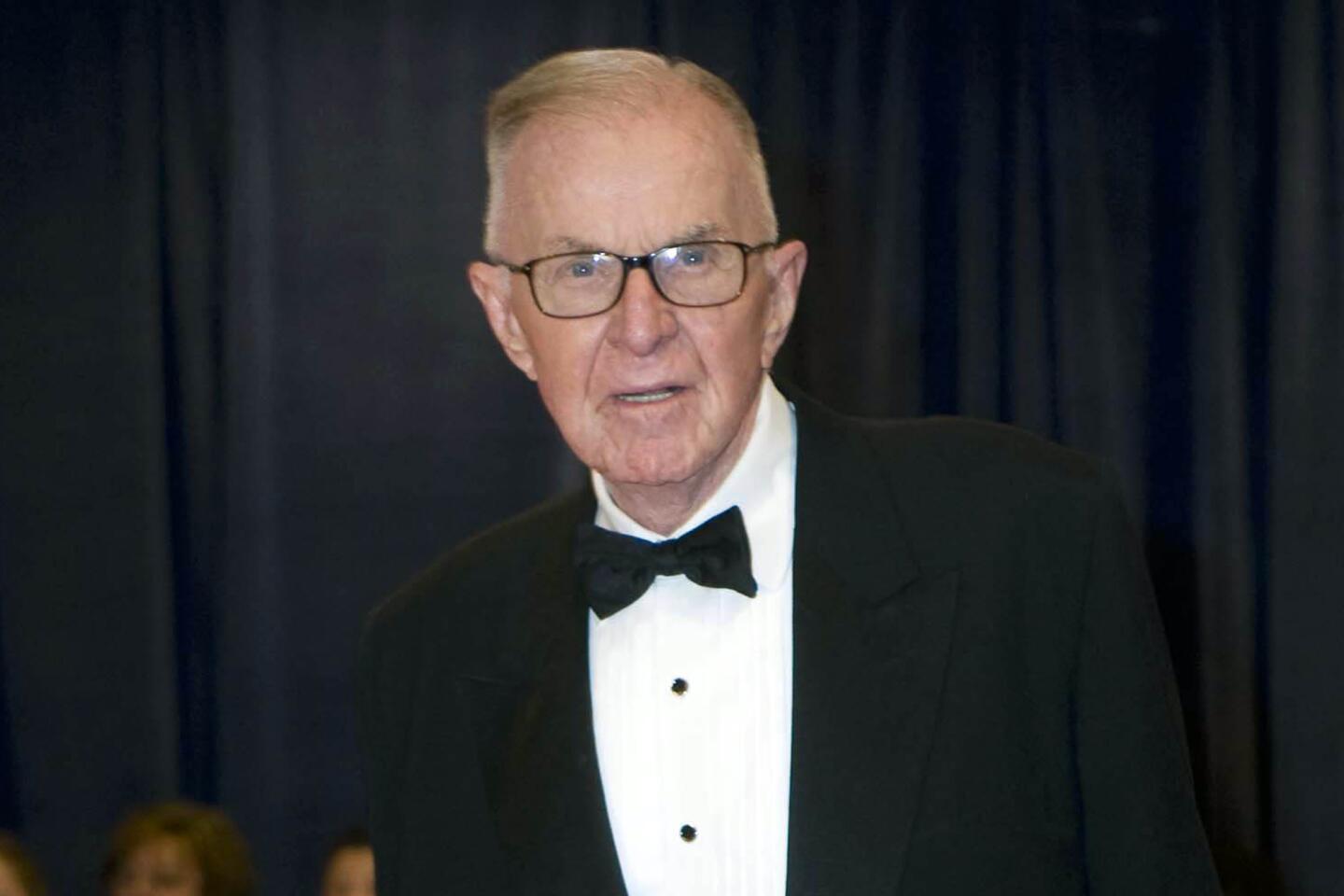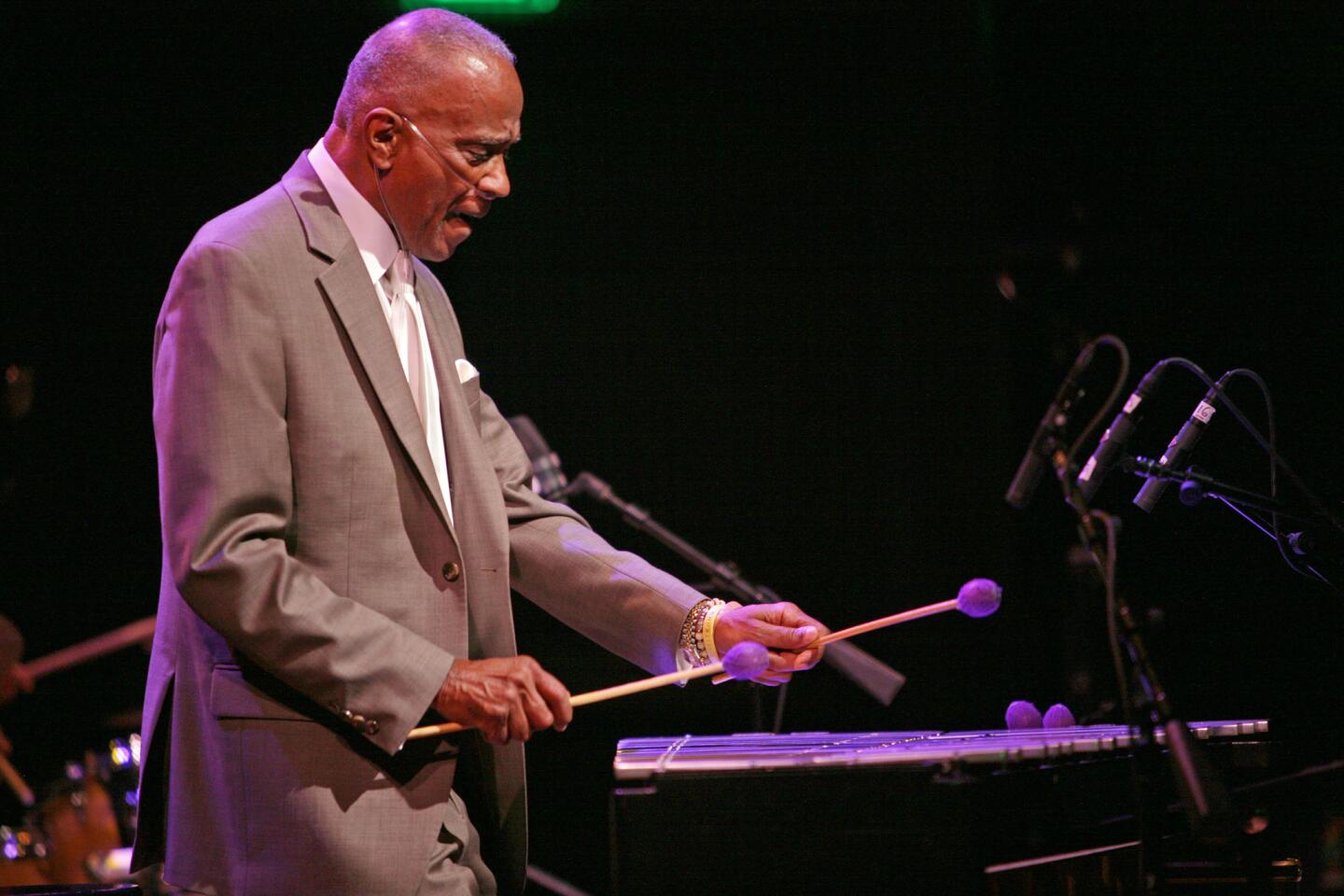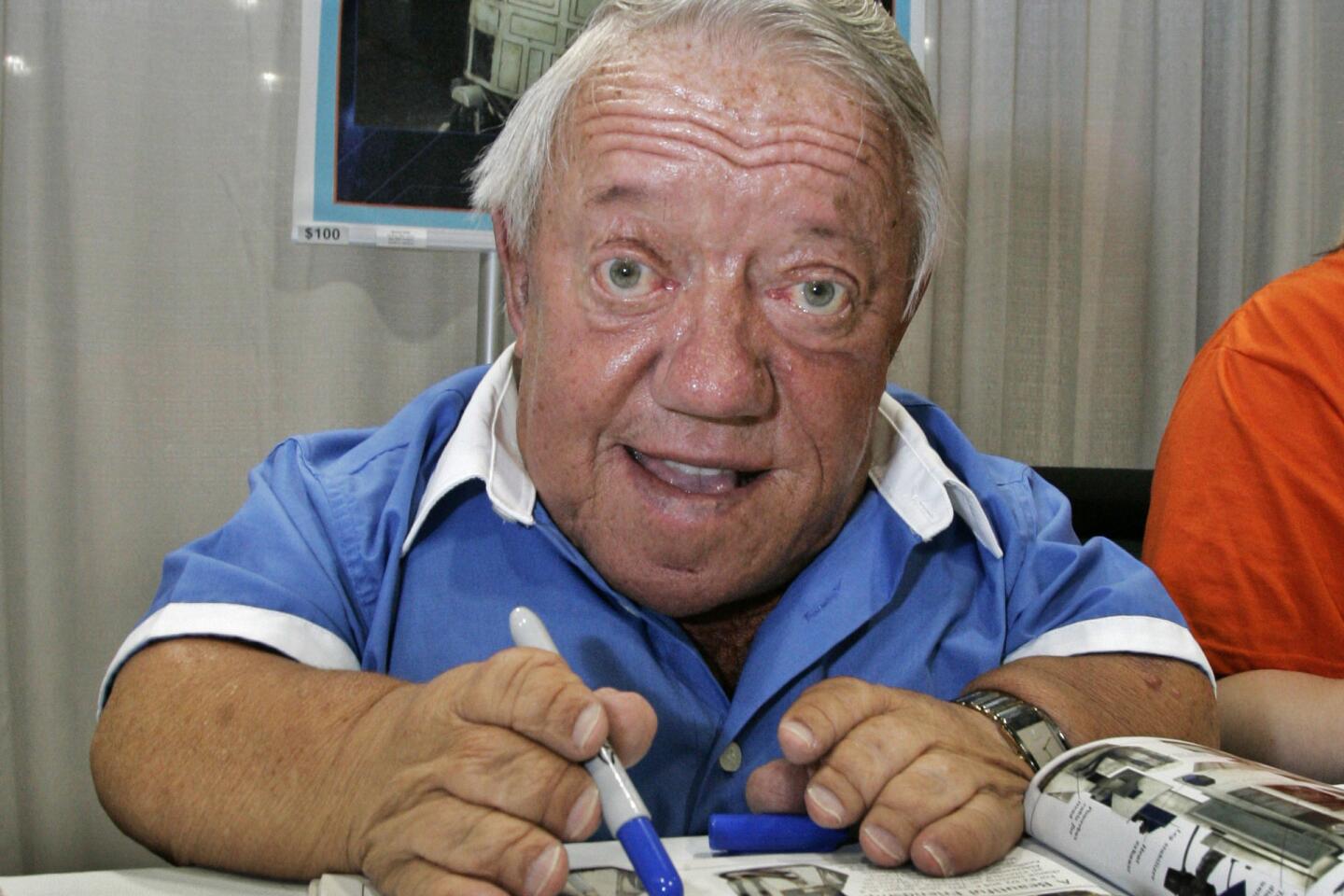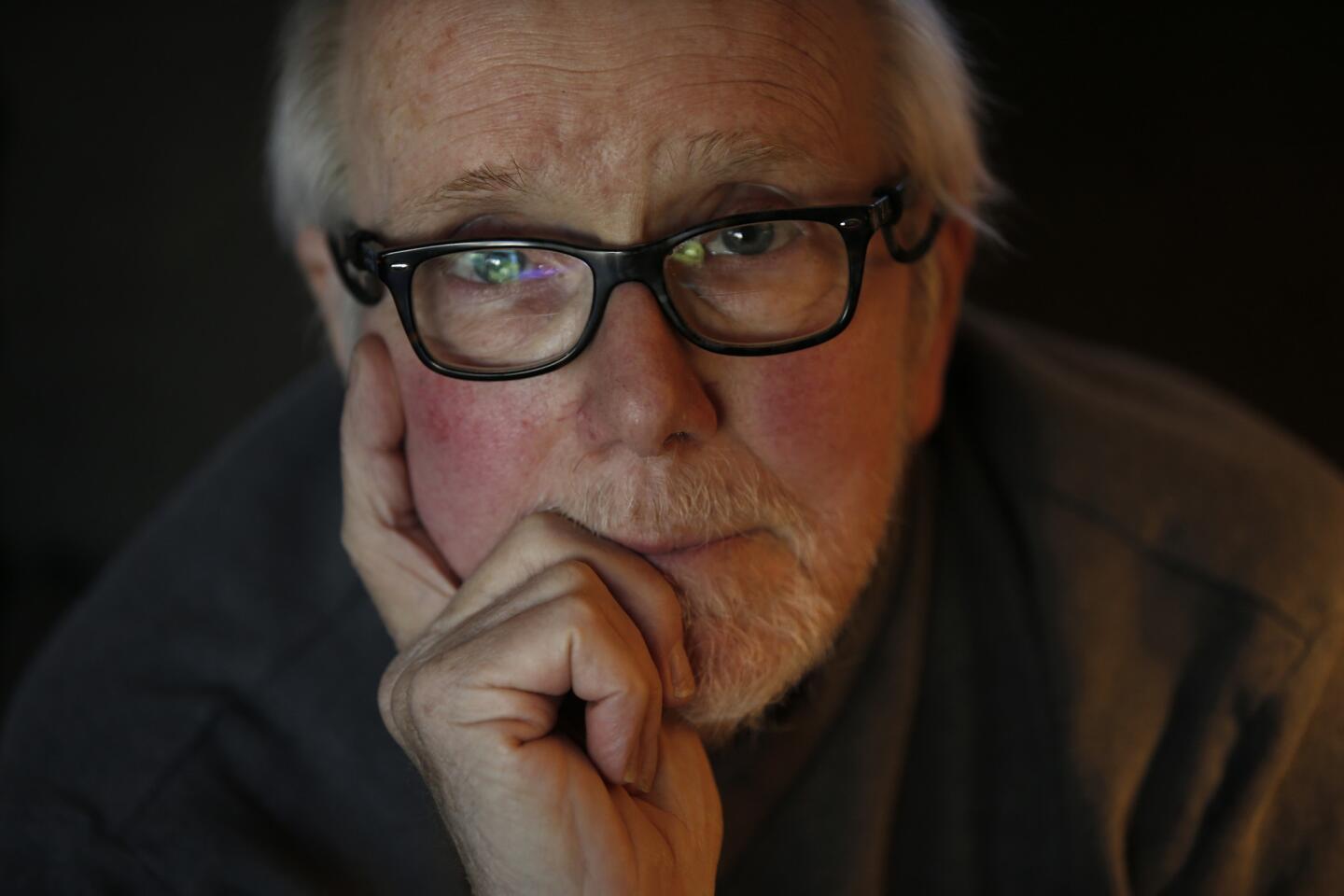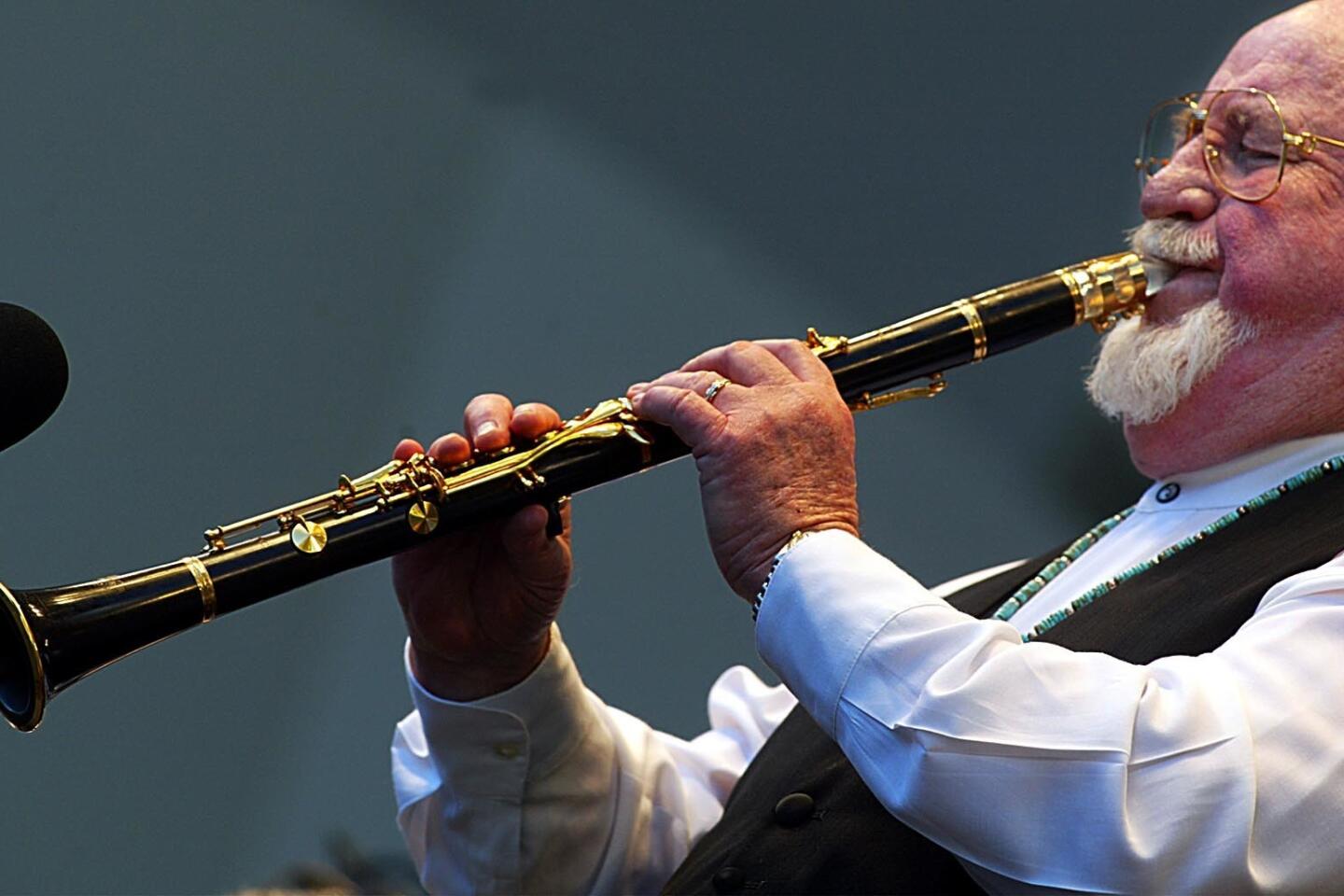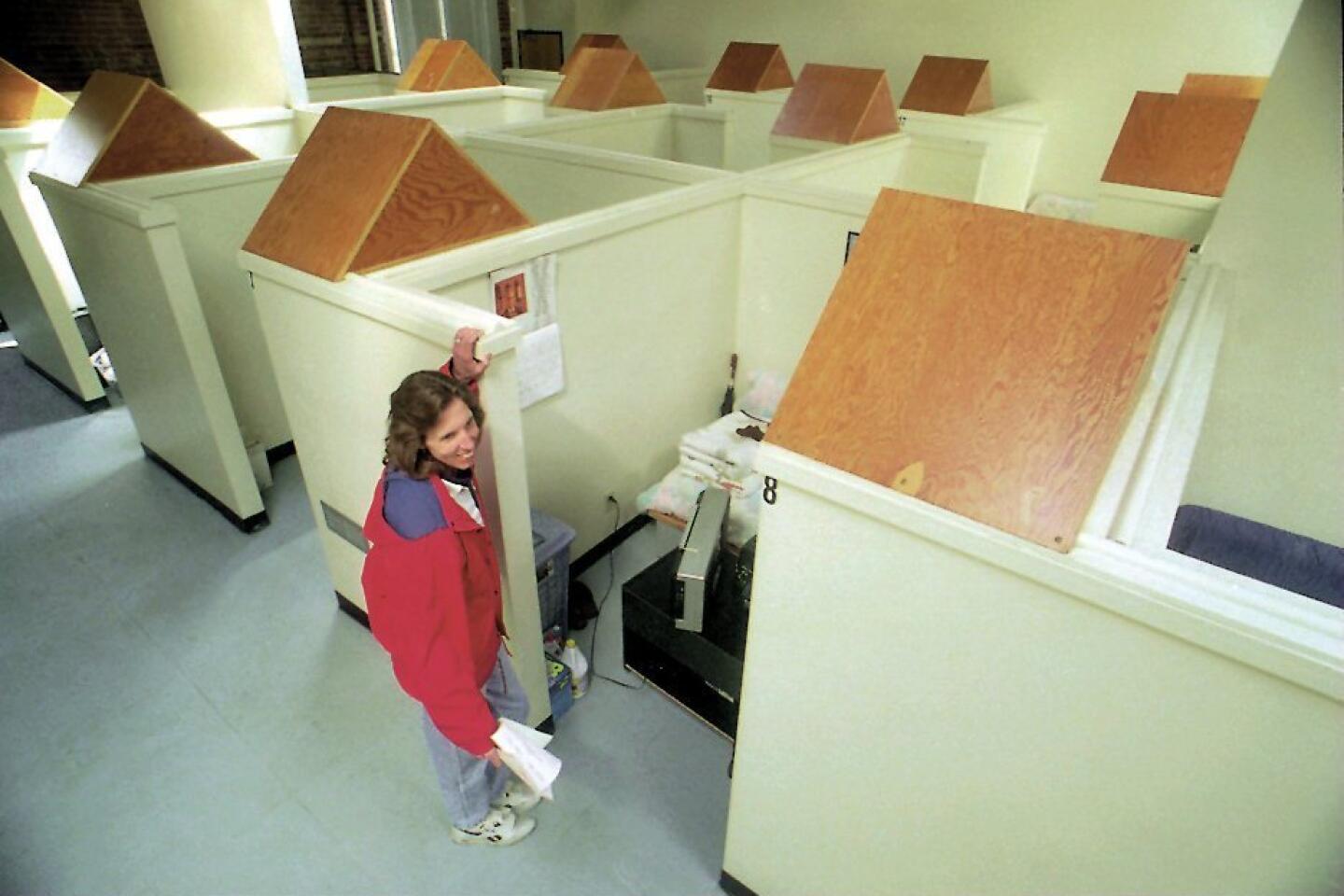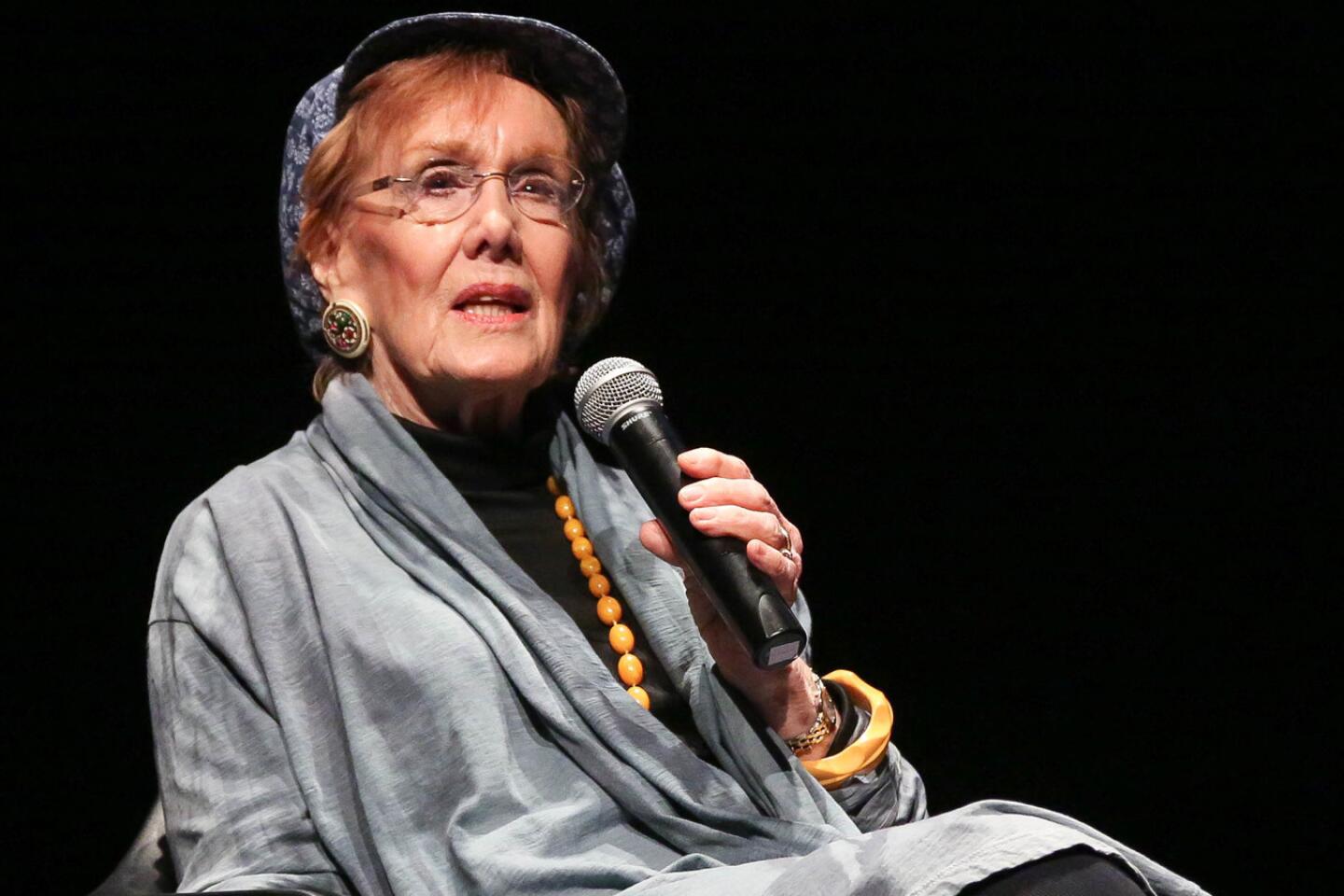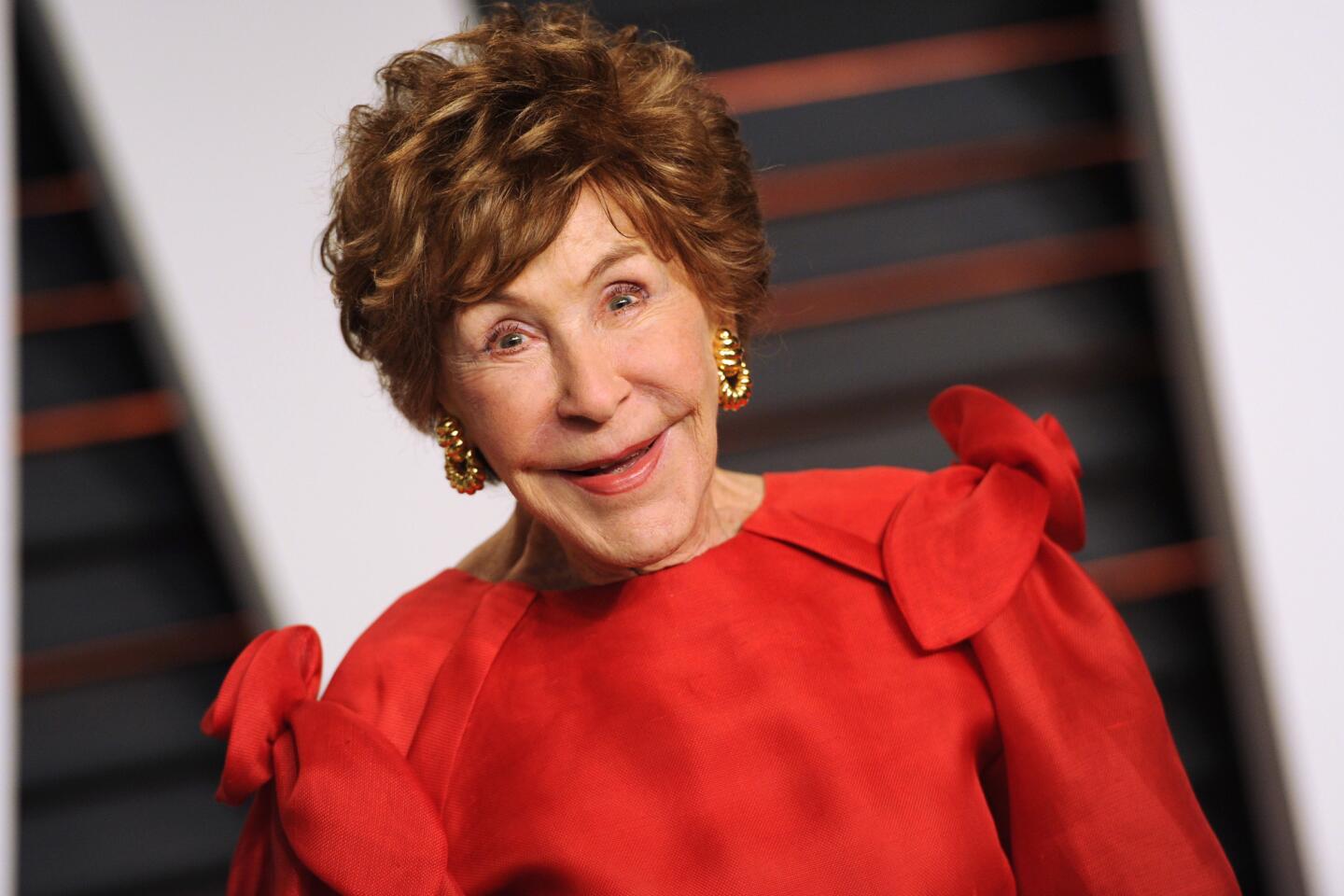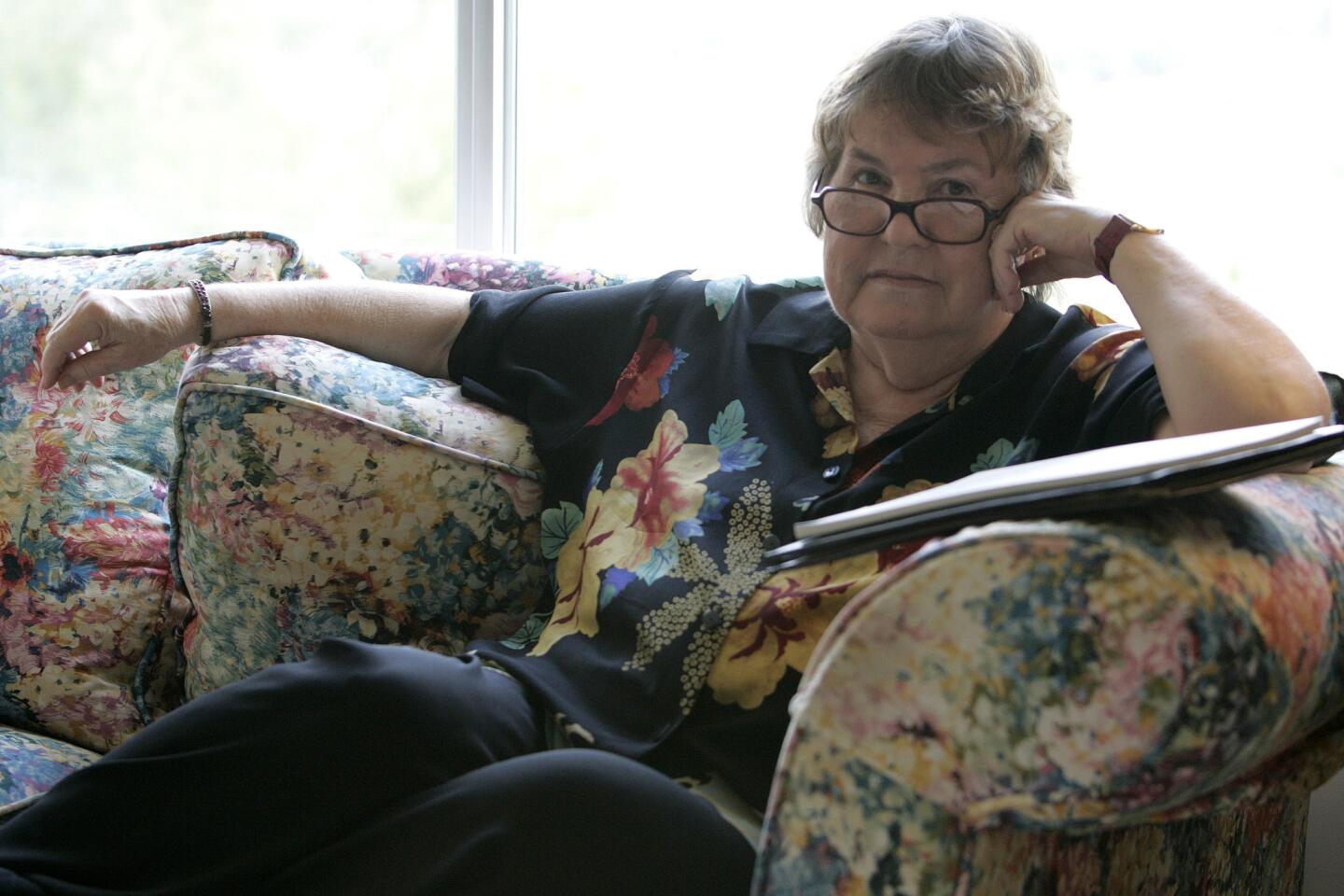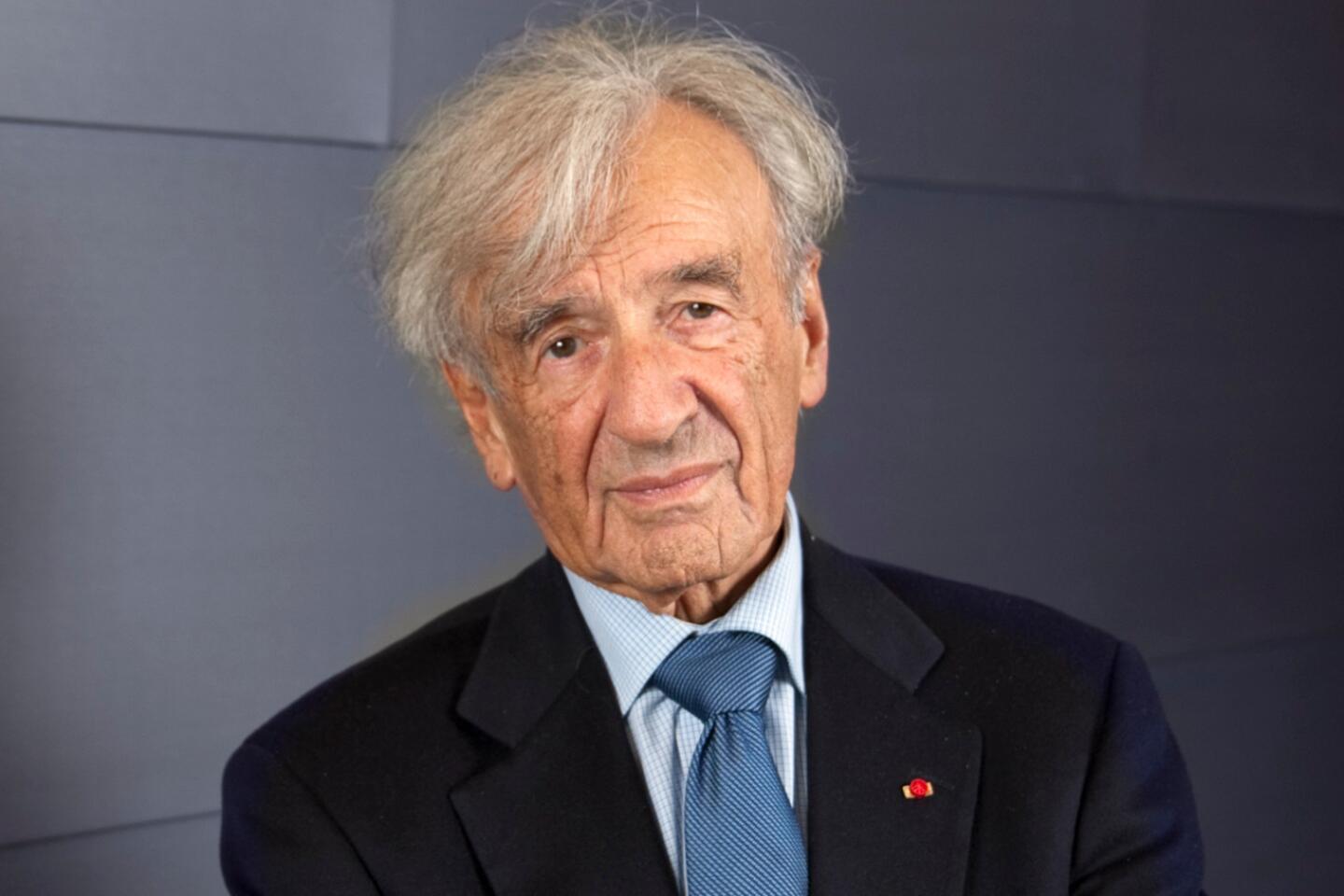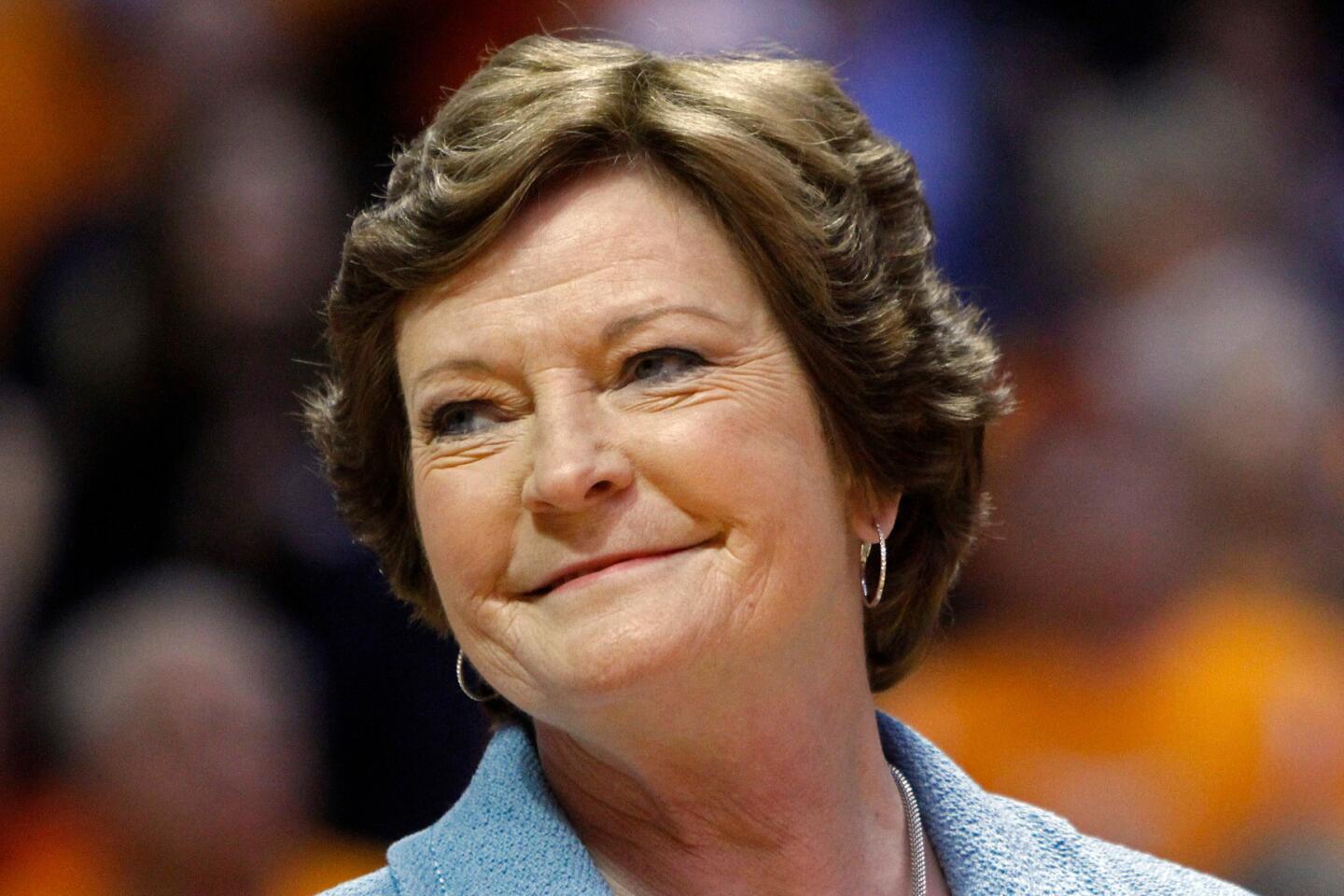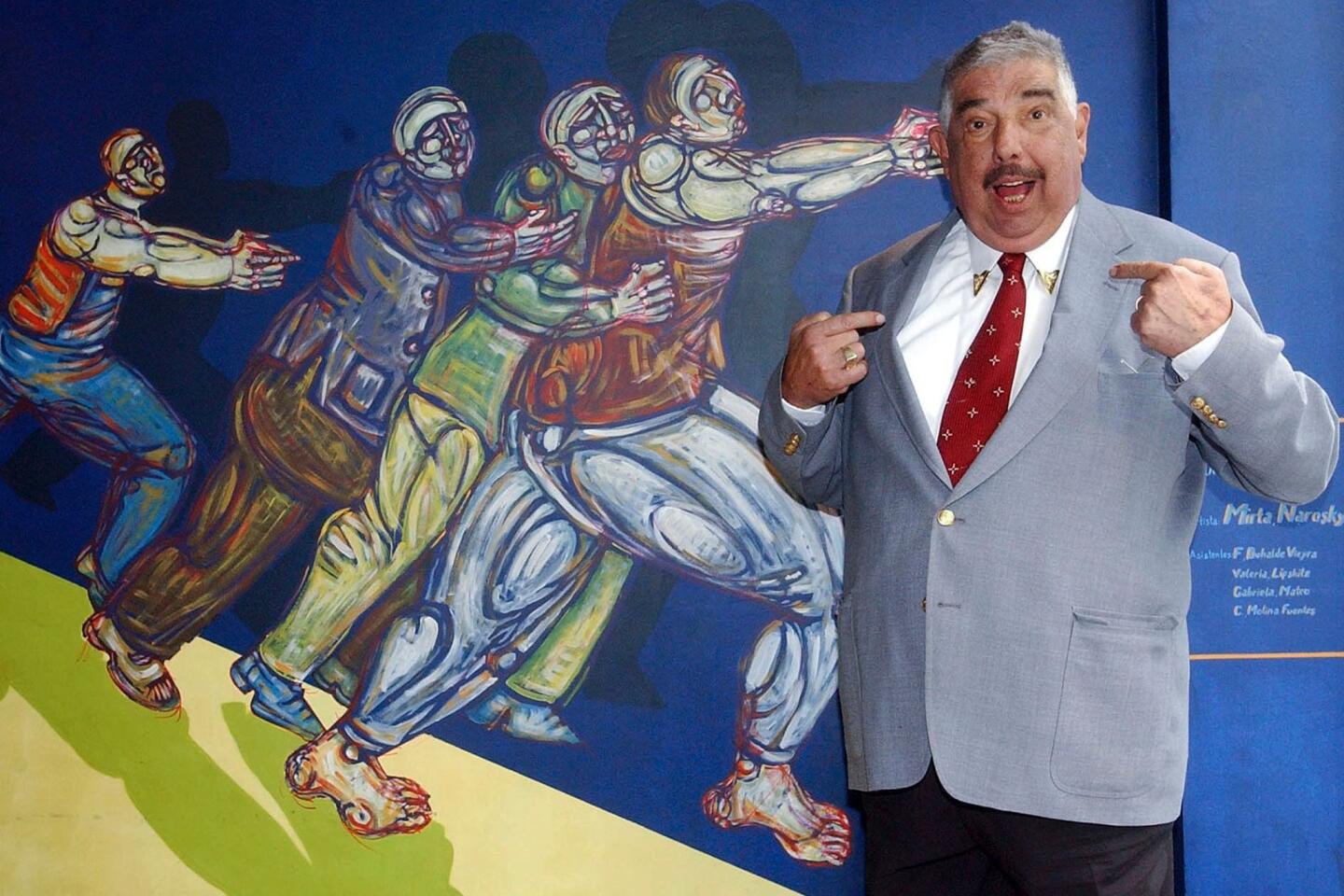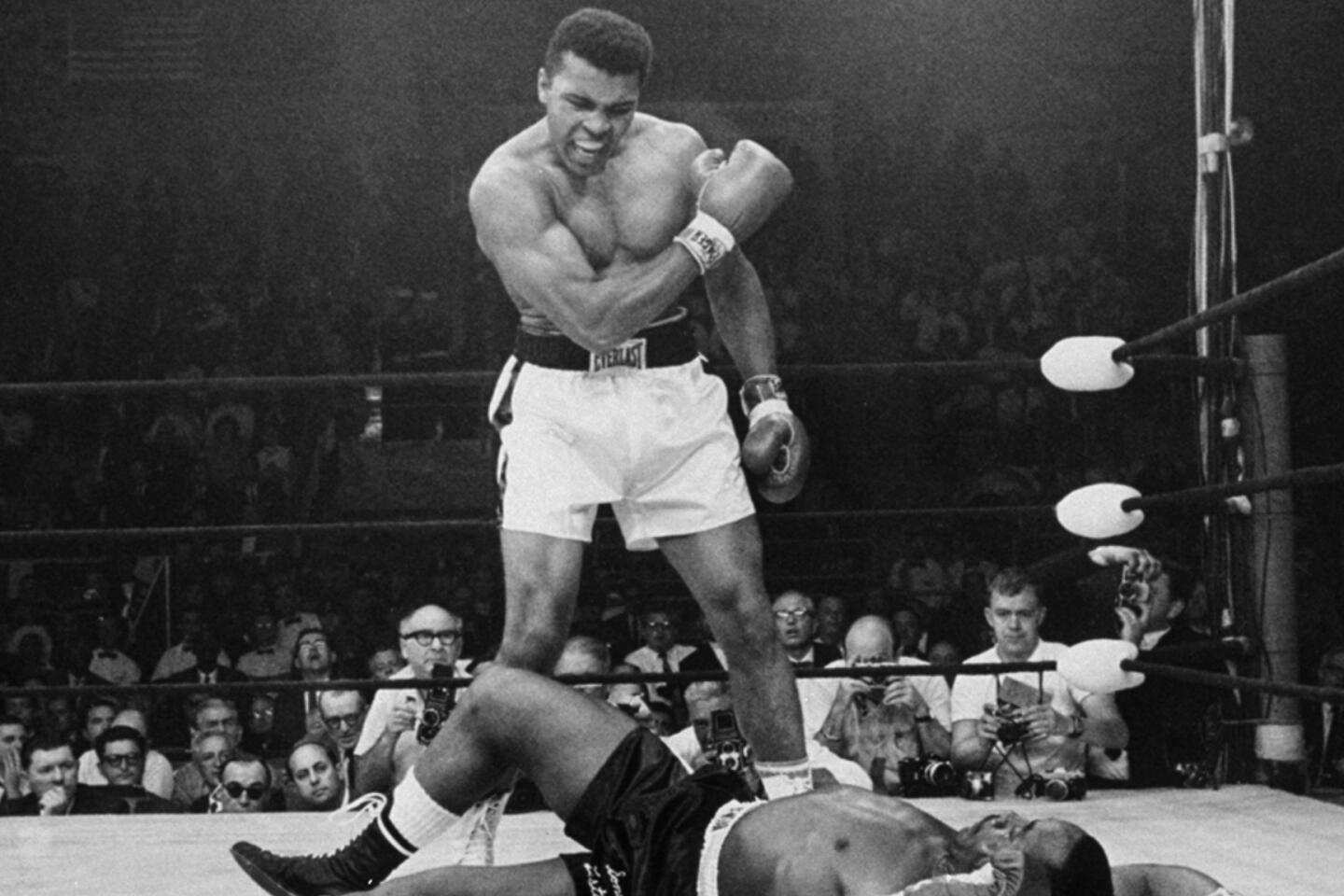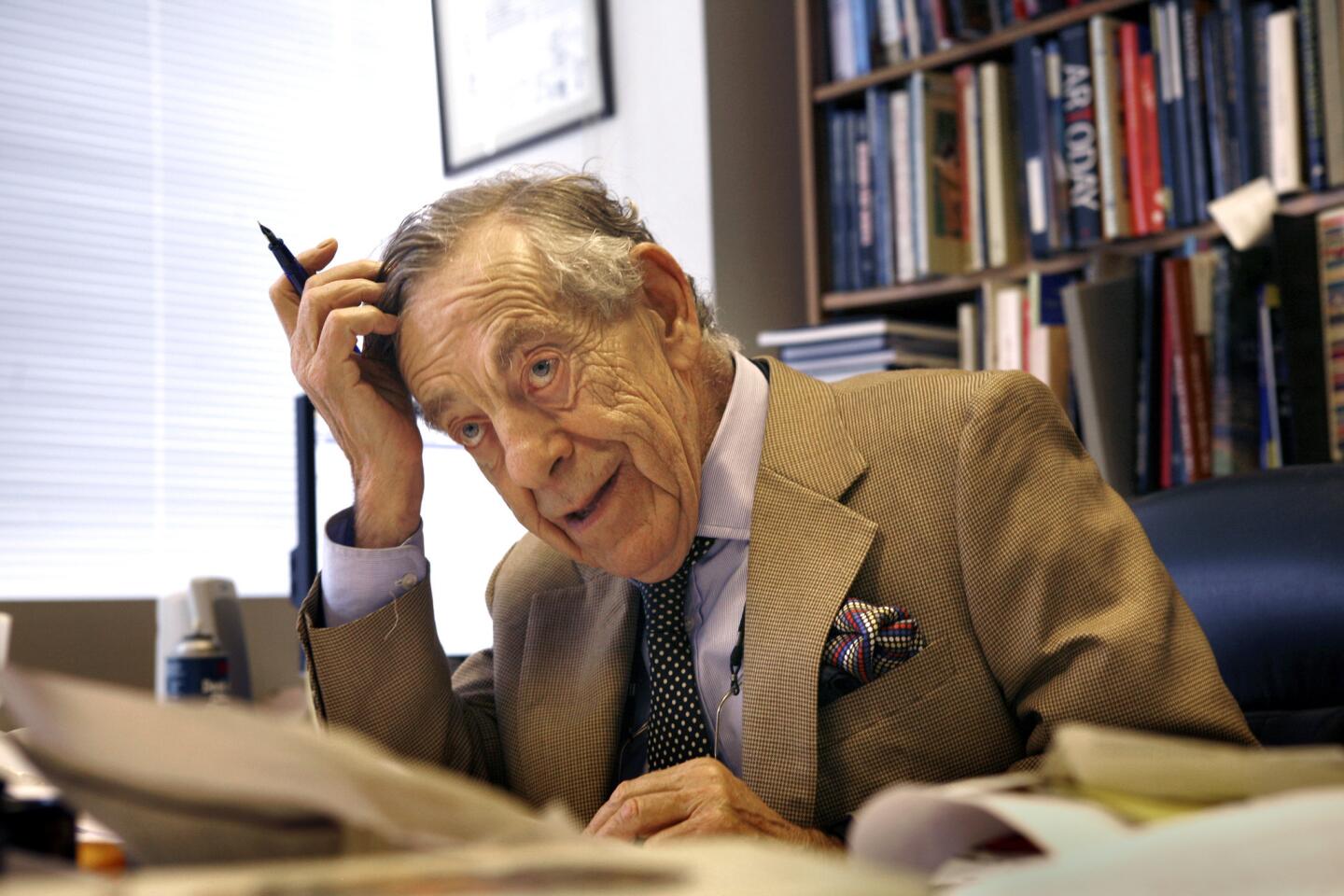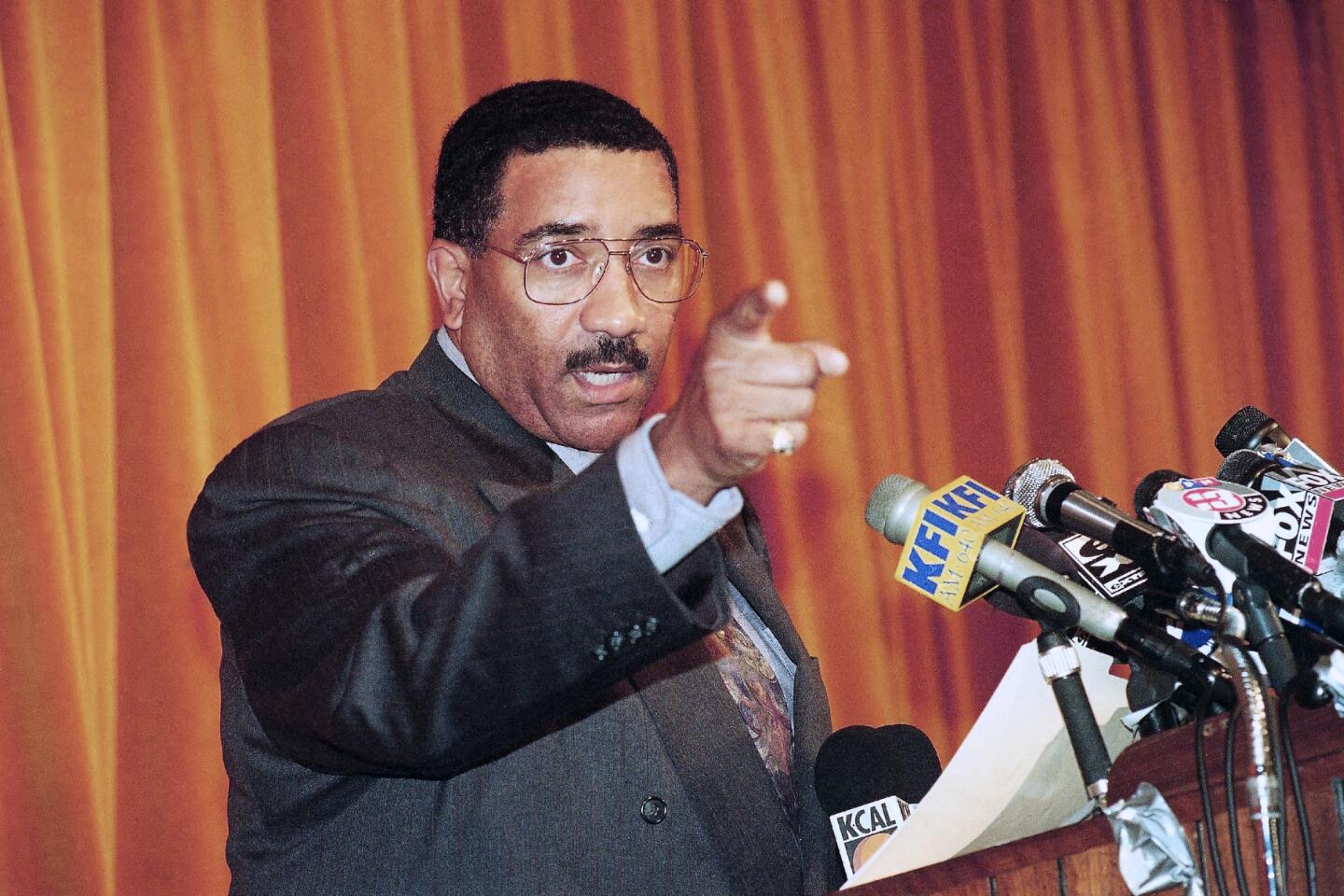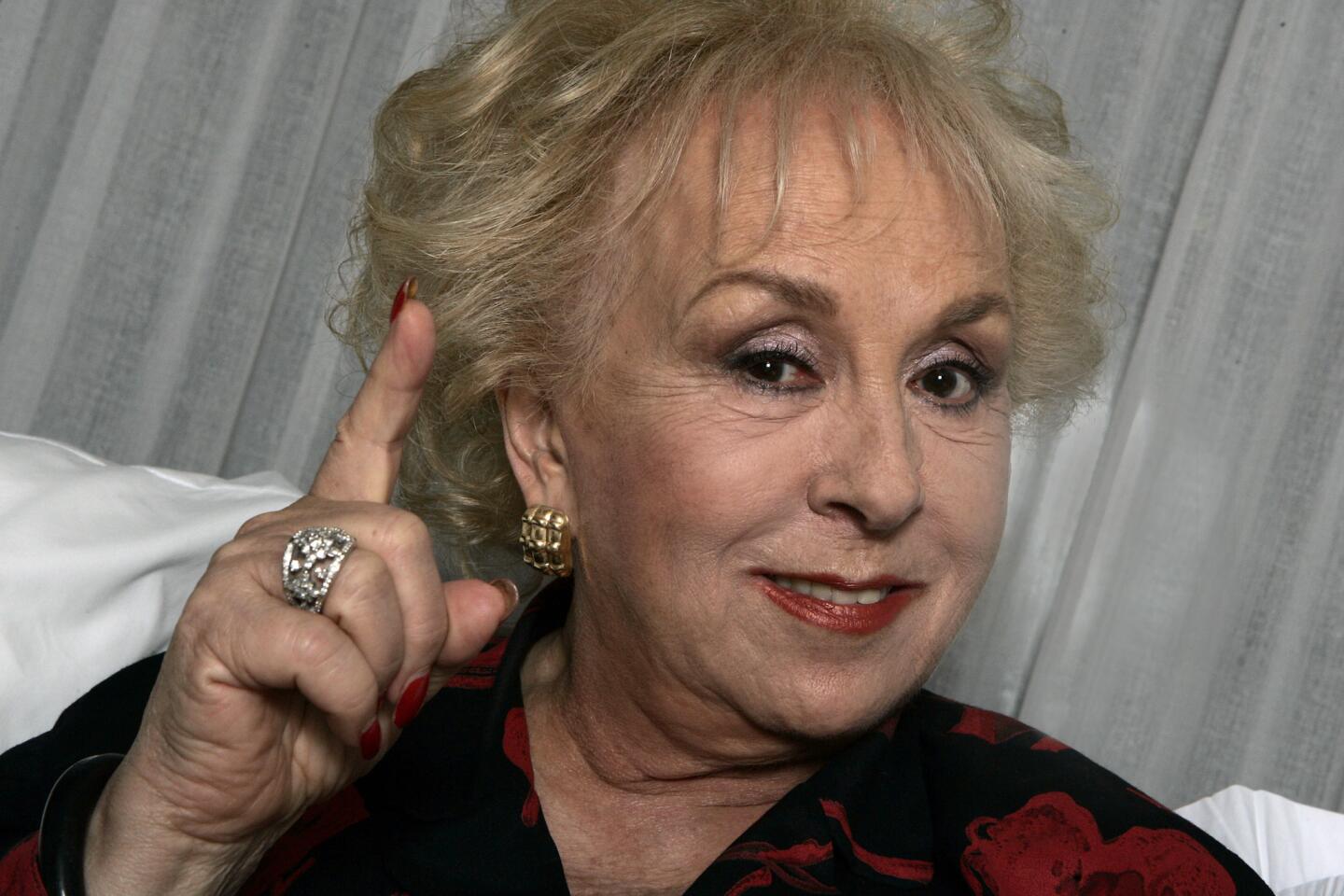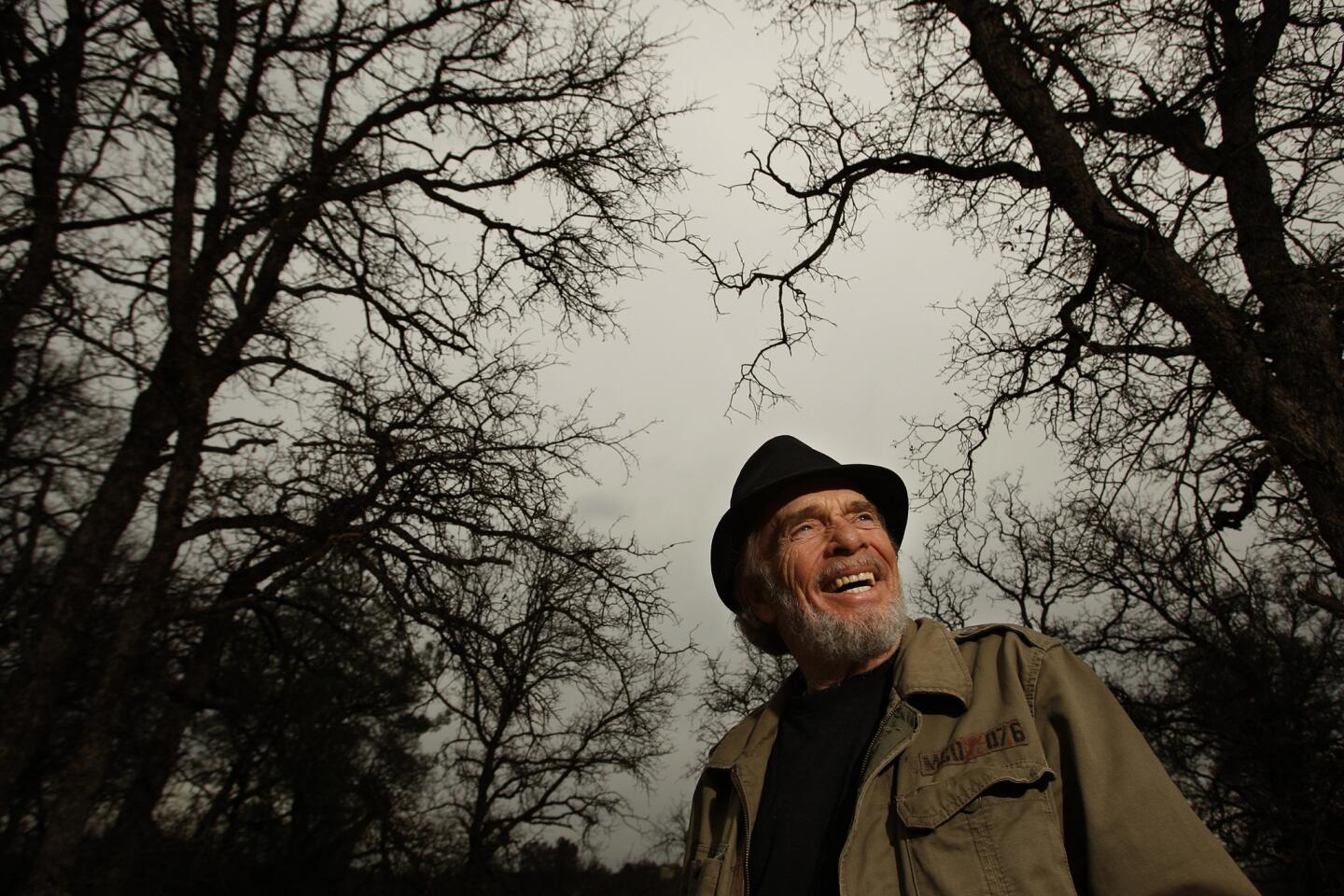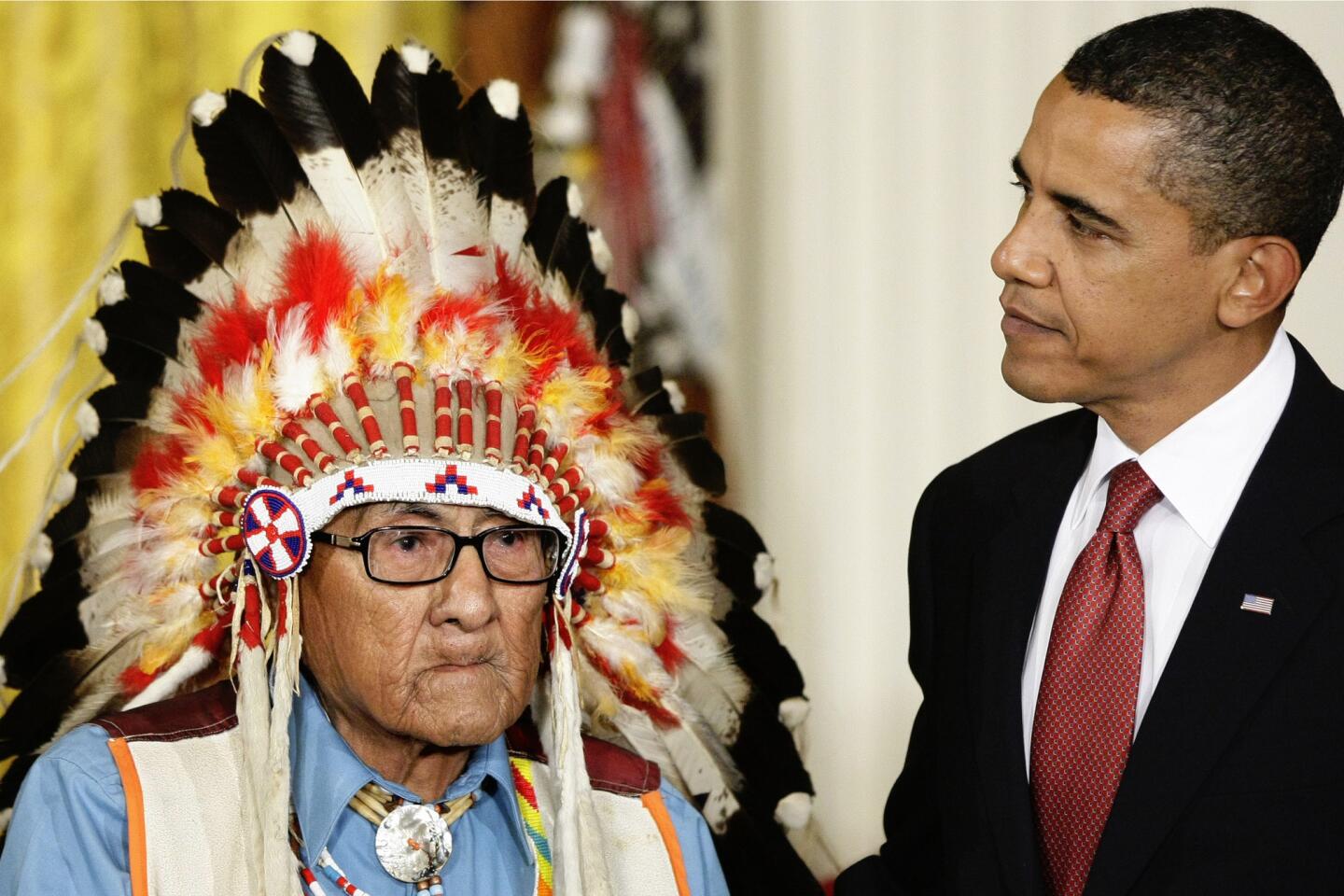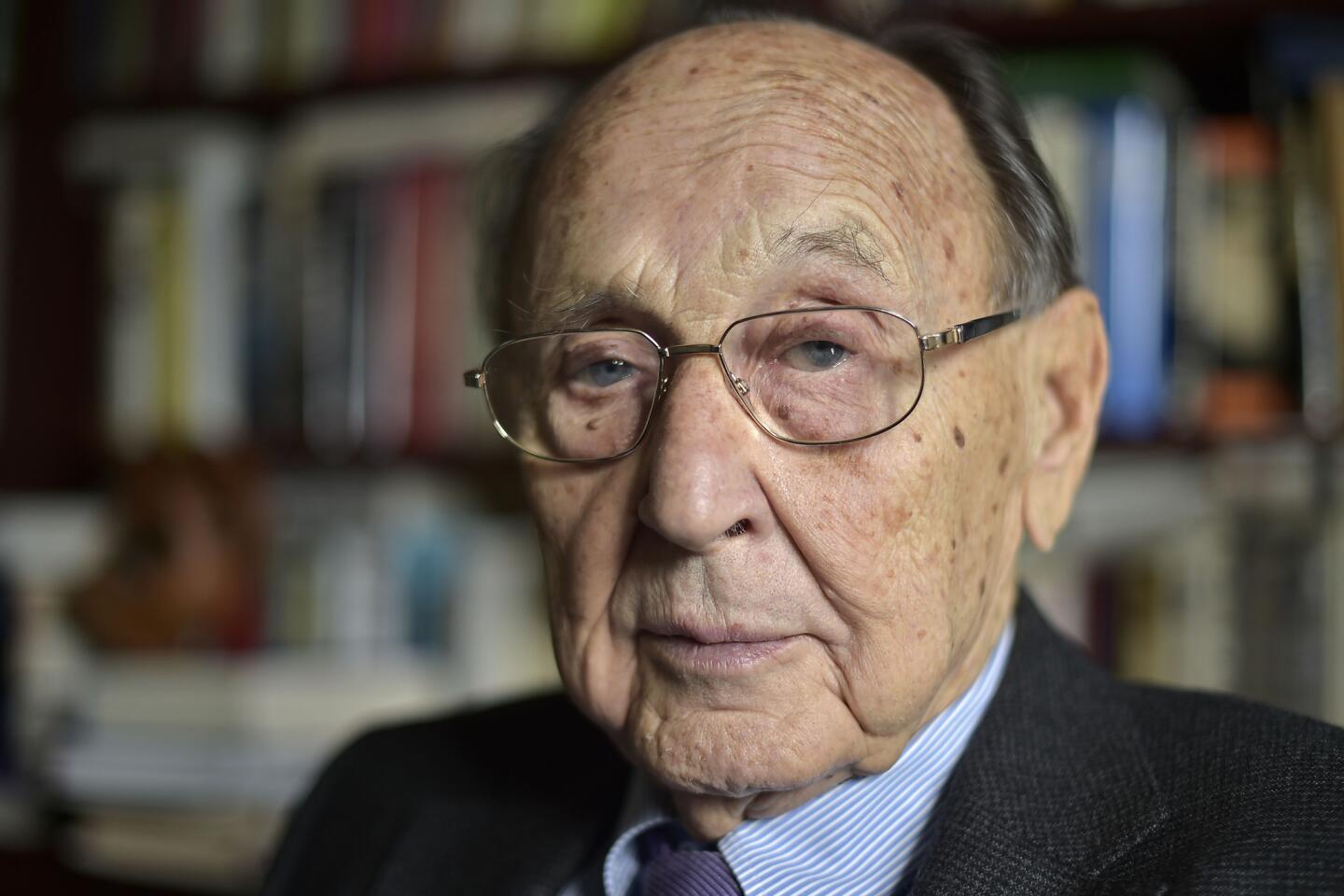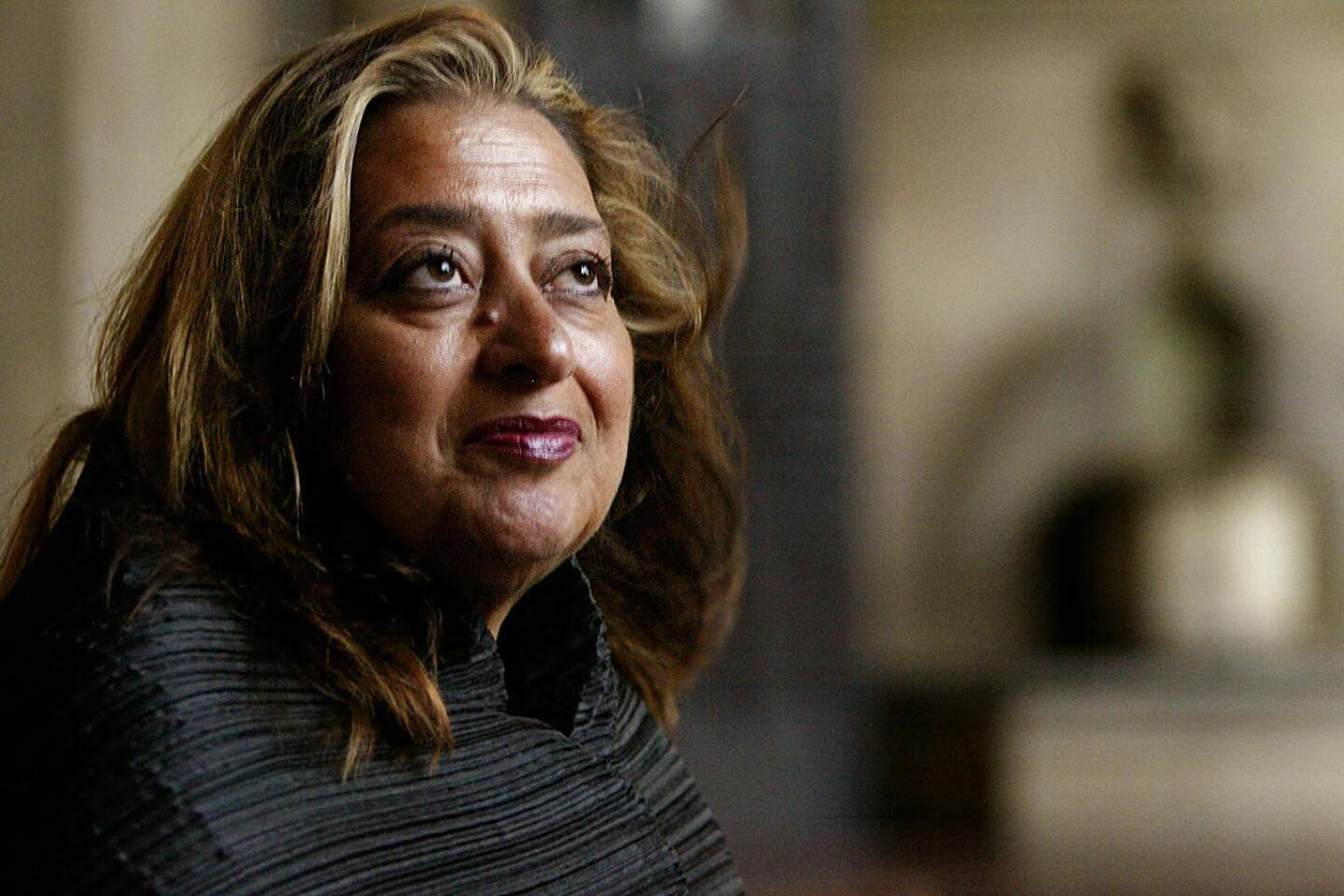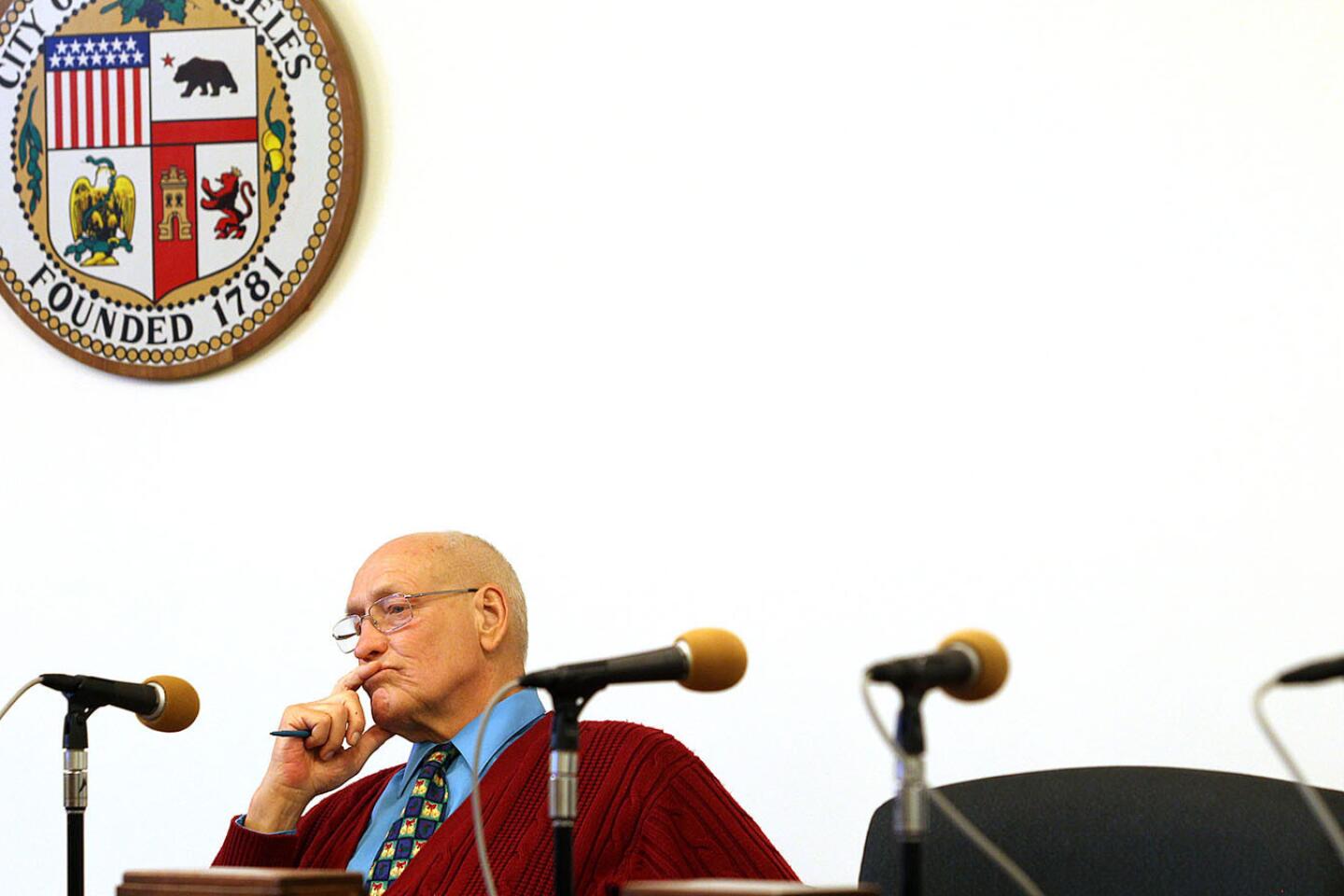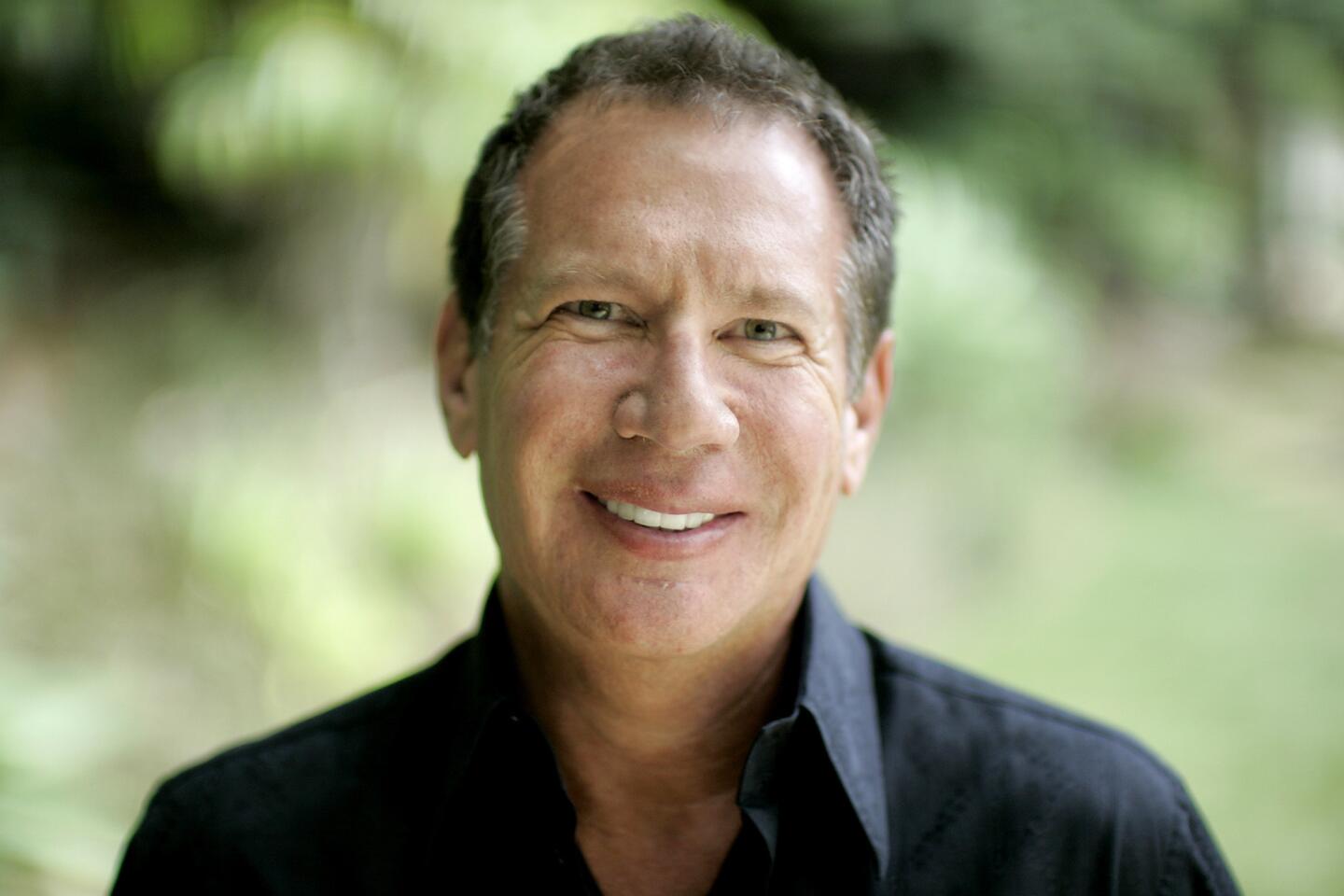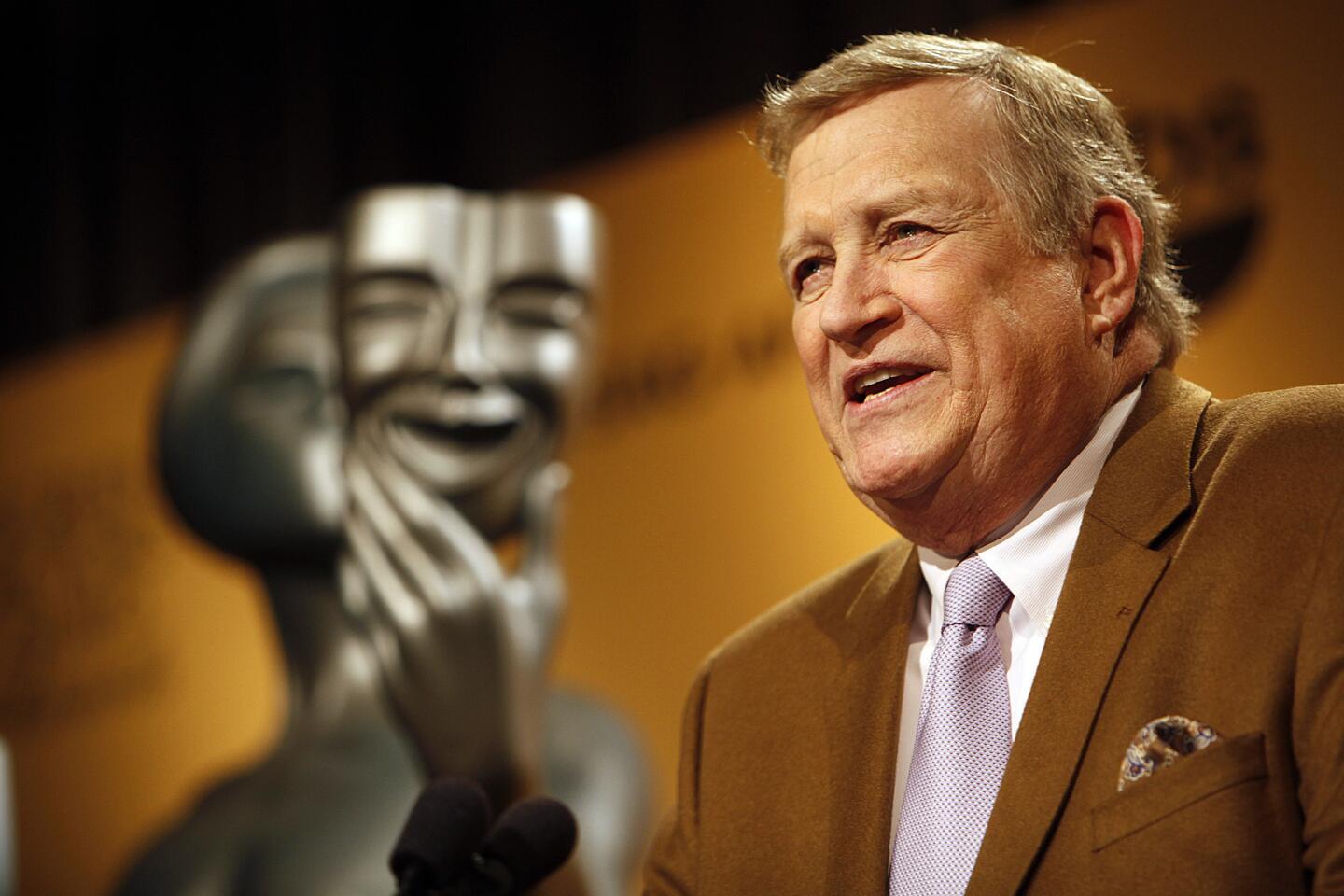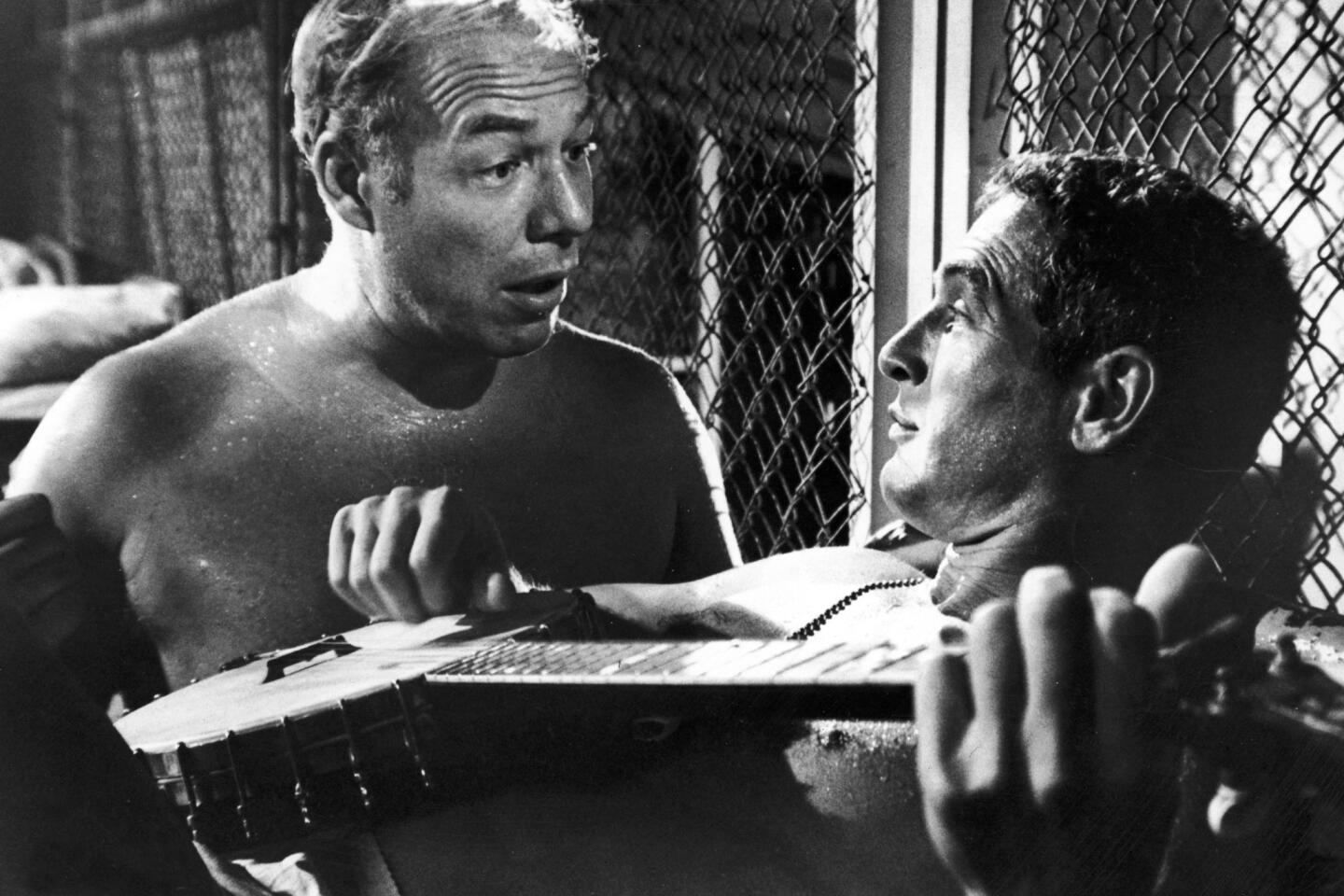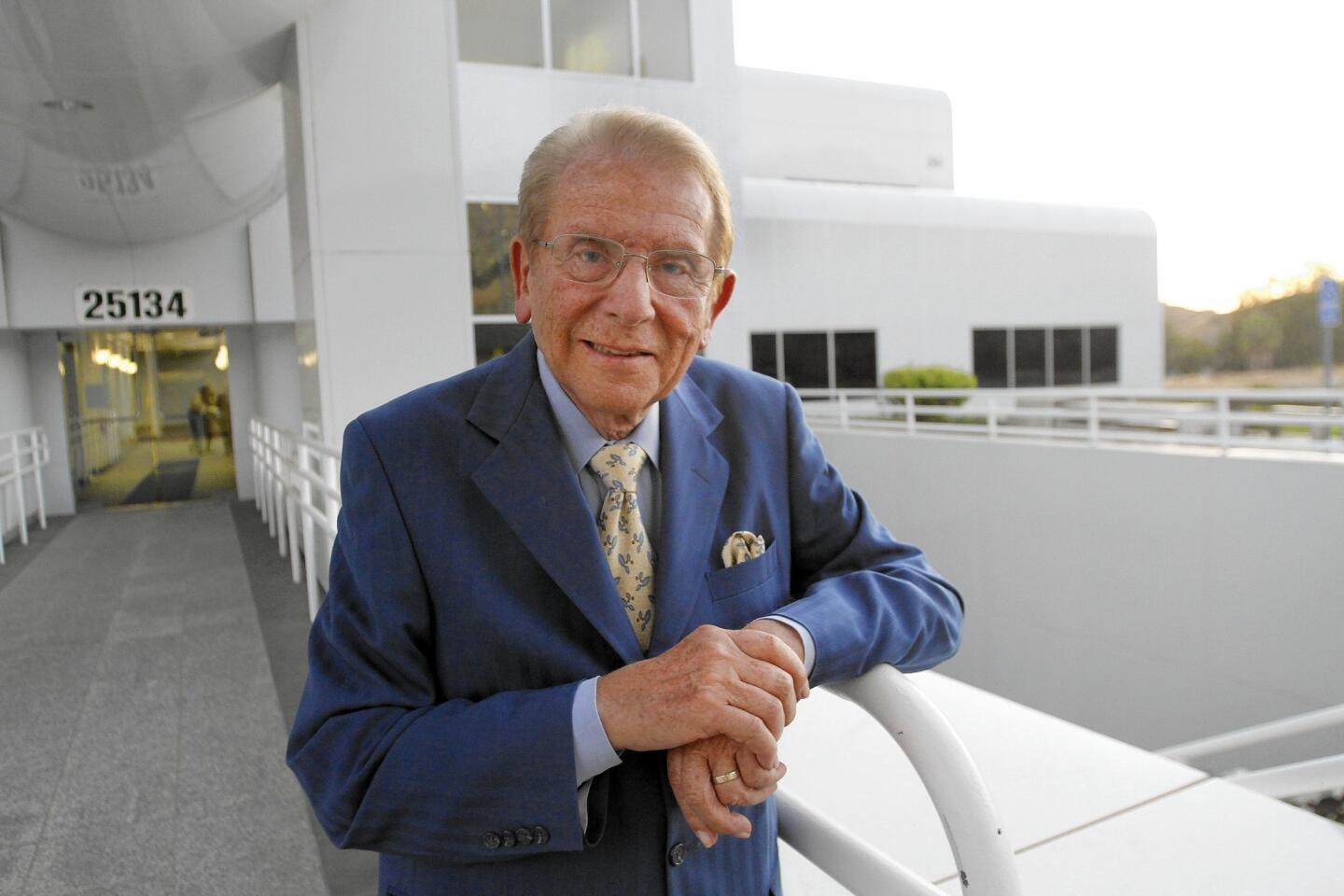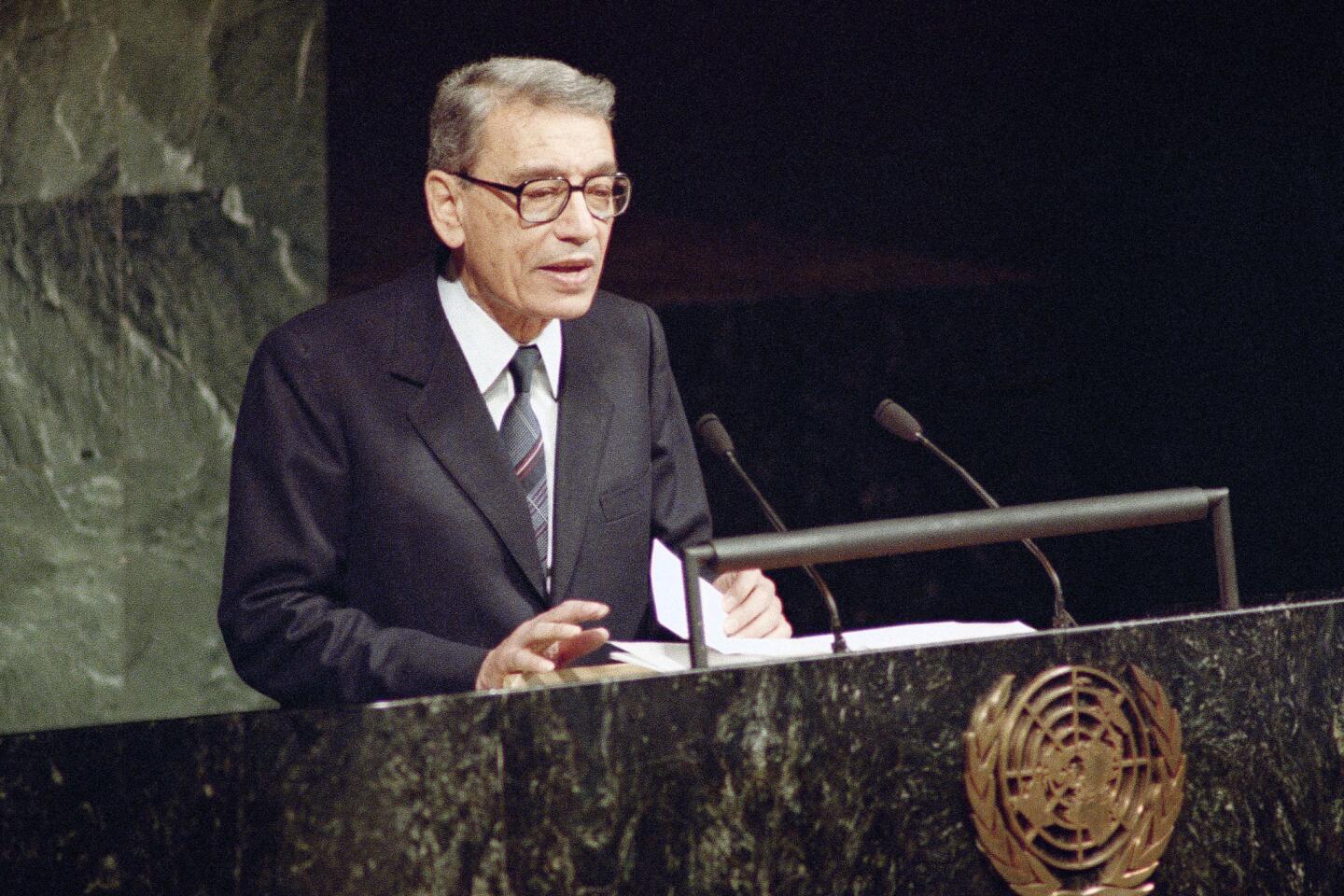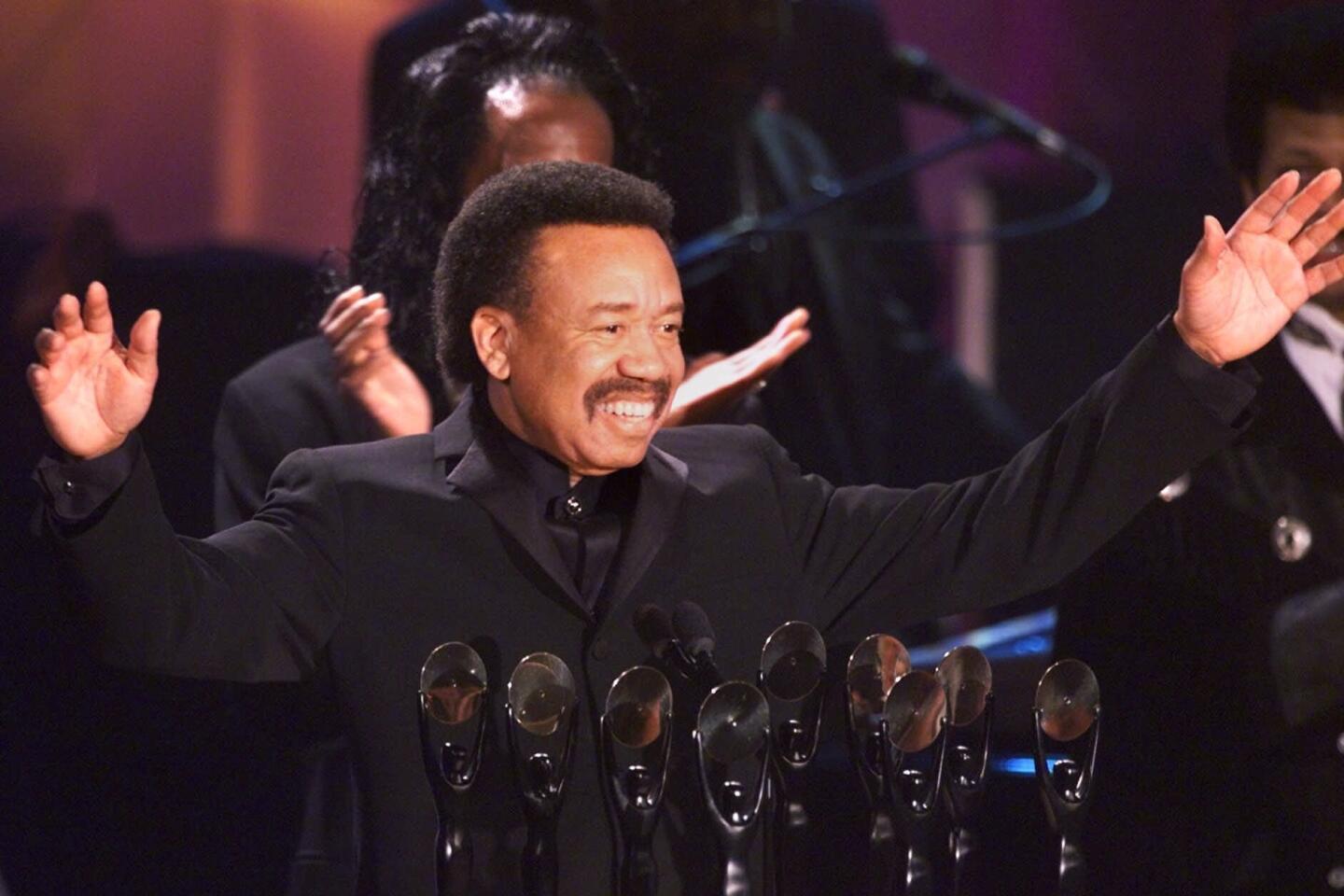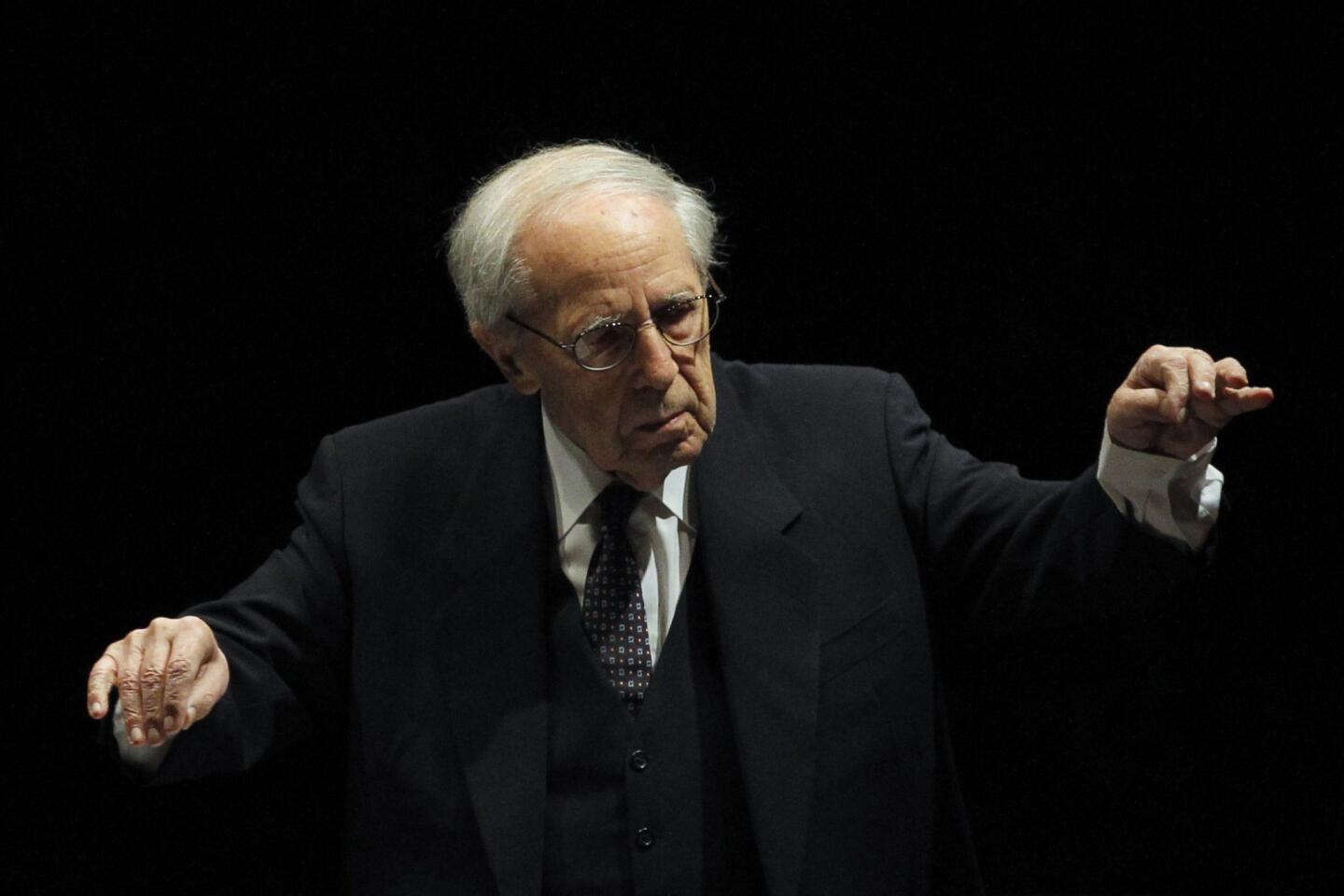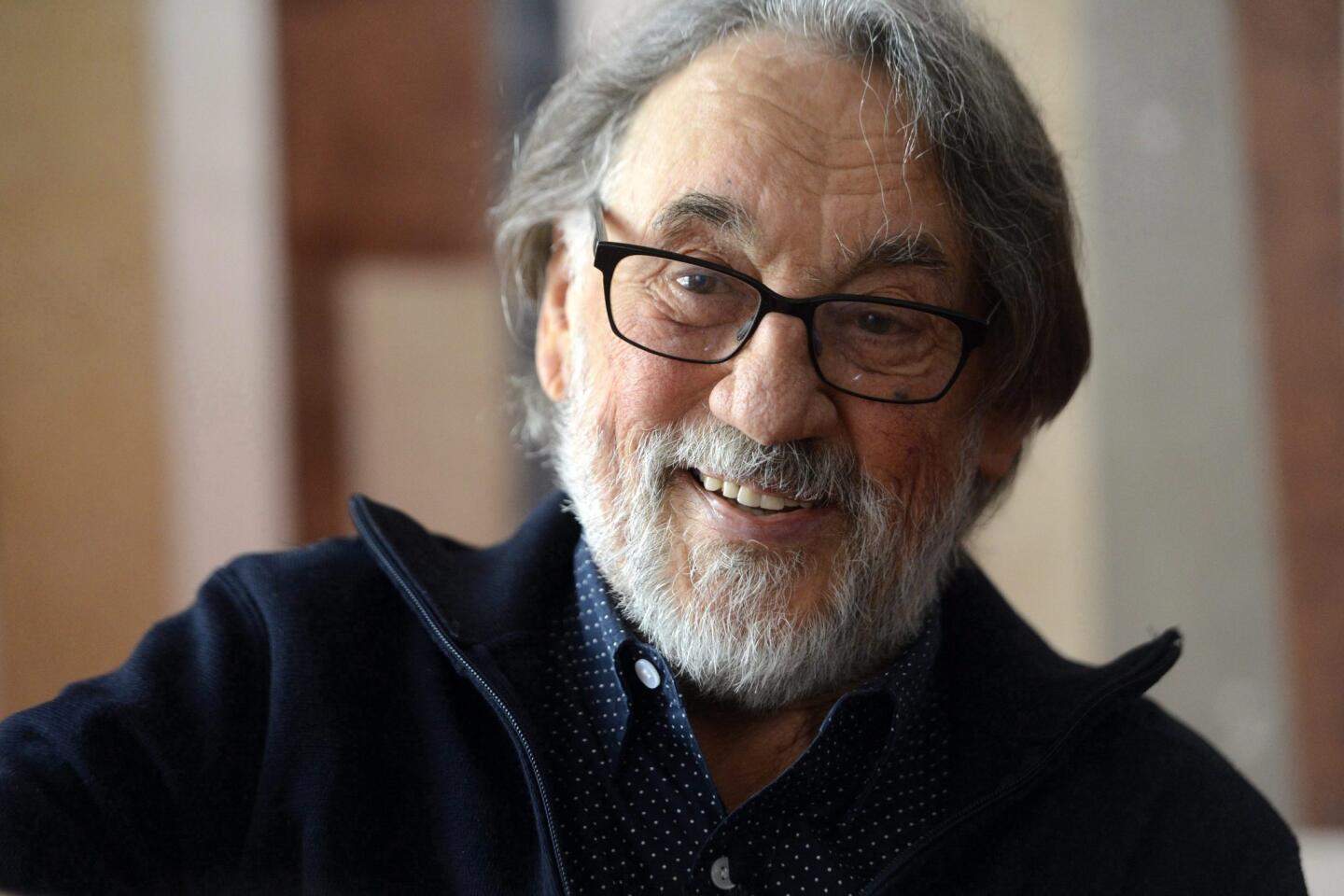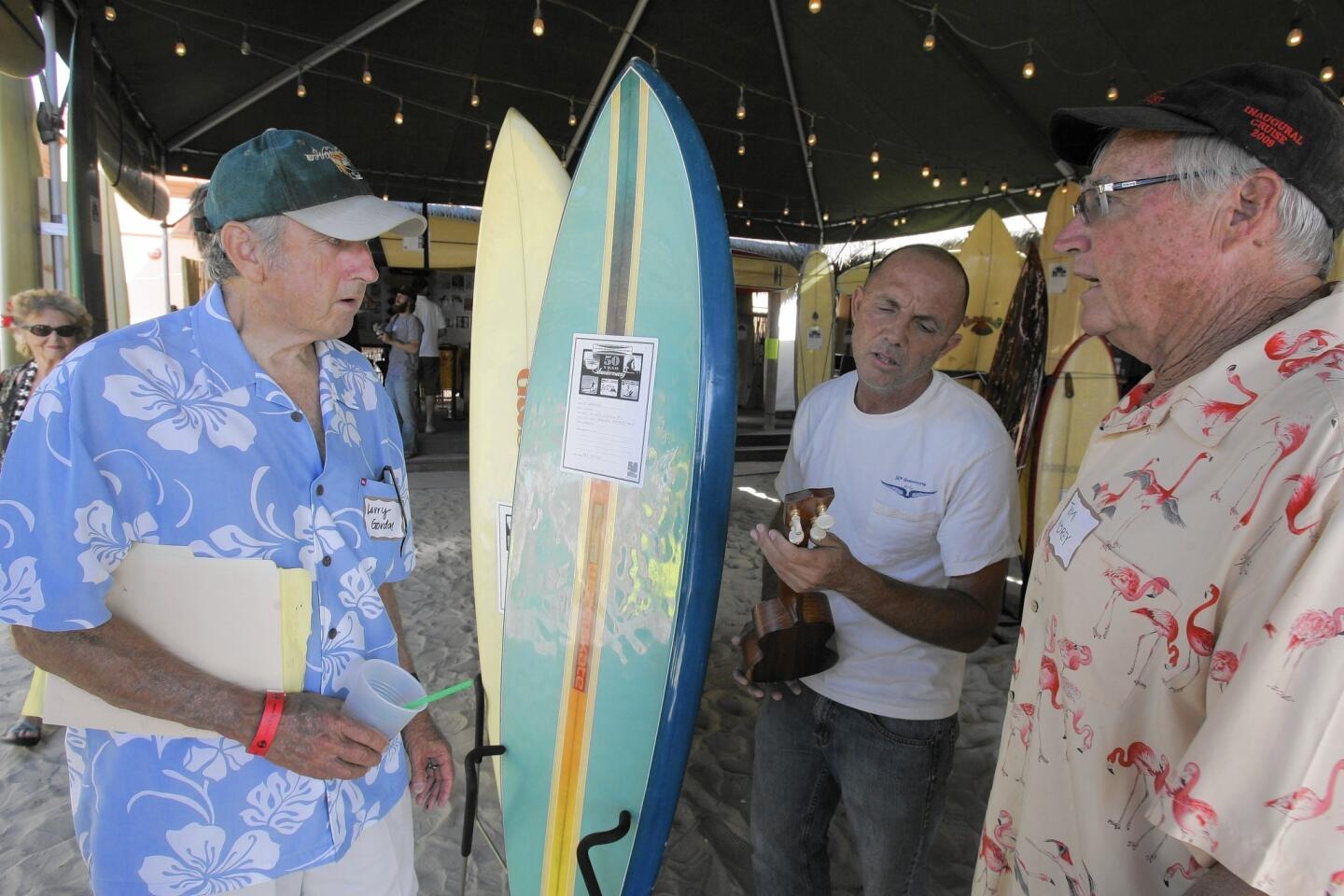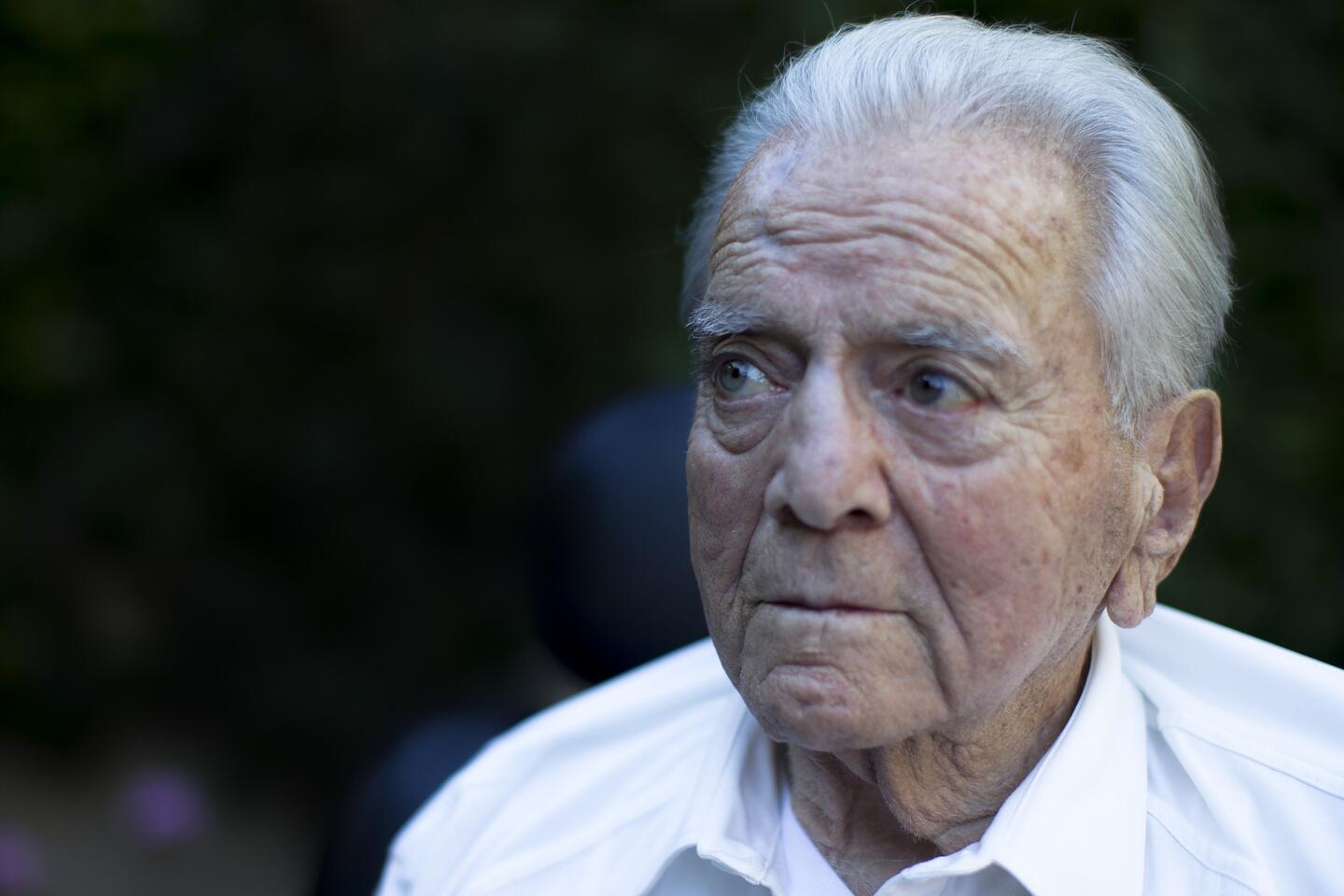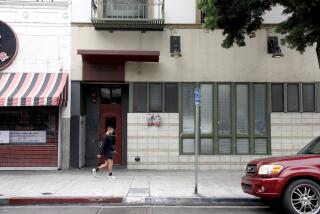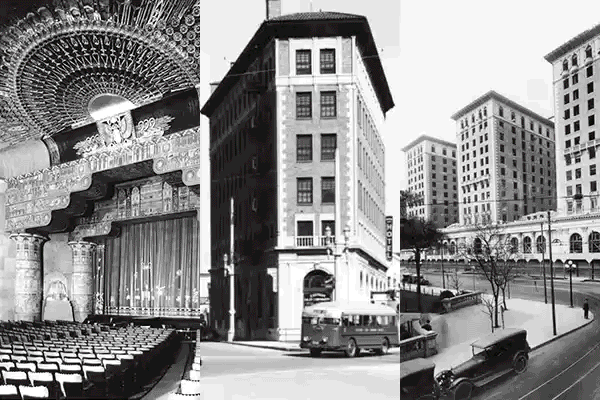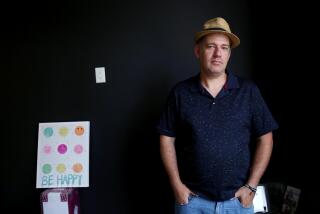Leonard Hill, a producer of made-for-TV movies turned developer who gave new life to old buildings in downtown L.A.âs Arts District â and then produced a romantic comedy about the area â has died.
Hill, who also donated $1.9 million for a new downtown park, died Tuesday at his home in Hancock Park, said his wife, Dr. Patricia Gordon. The cause was not disclosed. He was 68.
For the record:
9:20 a.m. June 16, 2016This obituary incorrectly states that along with partner Yuval Bar-Zemer, Leonard Hill co-founded Linear City Development, which has developed four major residential projects. It was an earlier partnership, Linear City LLC, with a third member, Paul Solomon, that developed the Biscuit Company and Toy Factory lofts.
With partner Yuval Bar-Zemer, Hill co-founded a company called Linear City Development that developed the Biscuit Company Lofts and the Toy Factory Lofts in the Arts District, and transformed a former Metropolitan Water District headquarters into the Elysian, a startling glass rampart of 96 lofts on the eastern edge of Echo Park.
He âfelt passionatelyâ about his gift earlier this year to the Mayorâs Fund for Los Angeles for construction of a 1.4-acre arts plaza beneath the new Sixth Street Bridge, said Rick Jacobs, executive vice mayor. The gift includes funds for a stage and performing arts series.
âHe loved Los Angeles and he was all about restoring it,â said Hillâs stepdaughter, Allie Weinstein. âHe found so much beauty in things that were old.â
1/61
Wongâs masterly touch brought a poetic quality to Disneyâs âBambiâ that has helped it endure as a classic of animation. The pioneering Chinese American artist influenced later generations of animators. Full obituary
(Peter Brenner / Handout) 2/61
After bursting onto the scene opposite Gene Kelly in the classic 1952 musical âSinginâ in the Rain,â Reynolds became Americaâs Sweetheart and a potent box office star for years. Her passing came only one day after her daughter, Carrie Fisher, died at the age of 60. Reynolds was 84. Full obituary
(John Rooney / Associated Press) 3/61
George Michael, the English singer-songwriter who shot to stardom in the 1980s as half of the pop duo Wham!, went on to become one of the eraâs biggest pop solo artists with hits such as âFaithâ and âI Want Your Sex.â He was 53. Full obituary
(Francois Mori / Associated Press) 4/61
The thoracic surgeon came up with an anti-choking technique in 1974. So simple it could be performed by children, the eponymous maneuver made Heimlich a household name. He was 96. Full obituary
(Al Behrman / Associated Press) 5/61
The hugely popular south Indian actress later turned to politics and became the highest elected official in the state of Tamil Nadu. She was 68. Full obituary
(AFP / Getty Images) 6/61
Best known for her portrayal of Carol Brady on âThe Brady Bunch,â Henderson
portrayed an idealized mother figure for an entire generation. Her character was the center of the show, cheerfully mothering her brood in an era when divorce was becoming more common. She was 82. Full obituary
(Jay L. Clendenin / Los Angeles Times) 7/61
Dubbed âDr. Wonderfulâ by the media, the Texas surgeon performed the first successful heart transplant in the United States and the worldâs first implantation of a wholly artificial heart. He also founded the Texas Heart Institute in Houston. He was 96. Full obituary
(David J. Phillip / Associated Press) 8/61
The prominent Los Angeles attorney went from defending his father, a powerful mob boss, to representing celebrities, corrupt businessmen, drug kingpins and the so-called Hollywood Madam, Heidi Fleiss. He was 70. Full obituary
(Ken Hively / Los Angeles Times) 9/61
The award-winning journalist wrote for the Washington Post and the New York Times before becoming an anchor of public television news programs âPBS NewsHourâ and âWashington Week.â Her career also included moderating the vice presidential debates in 2004 and 2008. She was 61. Full obituary
(Brendan Smialowski / Getty Images) 10/61
Instantly recognizable for his long white mane and a rich, hearty voice, Russell sang, wrote and produced some of rock ânâ rollâs top records. His hits included âDelta Lady,â âRoll Away the Stone,â âA Song for Youâ and âSuperstar.â He was 74. Full obituary
(Luis Sinco / Los Angeles Times) 11/61
The singer-songwriterâs literary sensibility and elegant dissections of desire made him one of popular musicâs most influential and admired figures for four decades. Cohen is best known for his songs such as âHallelujah,â âSuzanneâ and âBird on the Wire.â He was 82. Full obituary
(Joel Saget / AFP / Getty Images) 12/61
Reno was the first woman to serve as United States attorney general. Her unusually long tenure began with a disastrous assault on cultists in Texas and ended after the dramatic raid that returned Elian Gonzalez to his Cuban father. She was 78. Full obituary
(Dennis Cook / Associated Press) 13/61
The 1960s radical was in the vanguard of the movement to stop the Vietnam War and became one of the nationâs best-known champions of liberal causes. He was 76. Full obituary
(George Brich / Associated Press) 14/61
Tabei was the first woman to climb Mount Everest in 1975. In 1992, she also became the first woman to complete the âSeven Summits,â reaching the highest peaks of the seven continents. She was 77. Full obituary
(AFP / Getty Images) 15/61
Nixon was the creative force behind the popular soap operas âOne Life to Liveâ and âAll My Children.â She was a pioneer in bringing serious social issues, like racism, AIDS and prostitution, to daytime television. She was 93. Full obituary
(Chris Pizzello / Associated Press) 16/61
The former Israeli president was one of the founding fathers of Israel. The Nobel peace prize laureate was an early advocate of the idea that Israelâs survival depended on territorial compromise with the Palestinians. He was 93. Full obituary
(AFP / Getty Images) 17/61
A seven-time professional major tournament champion, Palmer revolutionized sports marketing as it is known today, and his success contributed to increased incomes for athletes across the sporting spectrum. He was 87. Full obituary
(David J. Phillip / Associated Press) 18/61
Known as the Vaticanâs exorcist, Amorth, a Roman Catholic priest, helped promote the ritual of banishing the devil from people or places. He was 91. Full obituary
(AFP / Getty Images) 19/61
The American playwright was known for works such as âThe Zoo Story,â âThe Sandbox,â âWhoâs Afraid of Virginia Woolf?â and âA Delicate Balance.â He was awarded the Pulitzer Prize for drama three times. He was 88. Full obituary
(Jennifer S. Altman / For the Times) 20/61
The ska pioneer and Jamaican music legend recorded thousands of records, including such hits as âAl Caponeâ and âJudge Dread.â He helped ignite the ska movement in England, and later helped carry it into the rock-steady era in the mid-1960s. He was 78. Full obituary
(Larry Ellis / Getty Images) 21/61
Known as âthe first lady of anti-feminism,â Schlafly was a political activist who galvanized grass-roots conservatives to help defeat the Equal Rights Amendment and, in ensuing decades, effectively push the Republican Party to the right. She was 92. Full obituary
(Christine Cotter / Los Angeles Times) 22/61
OâBrian helped tame the Wild West as the star of TVâs âThe Life and Legend of Wyatt Earpâ and was the founder of a long-running youth leadership development organization. âWyatt Earpâ became a top 10-rated series and made OâBrian a household name. He was 91. Full obituary
(Ricardo DeAratanha / Los Angeles Times) 23/61
Jerry Heller, the early manager of N.W.A, was an important and colorful personality in the emerging West Coast rap scene in the 1980s. Heller was 75. Full obituary
(Lori Shepler / Los Angeles Times) 24/61
Two-time Oscar nominee Gene Wilder brought a unique blend of manic energy and world-weary melancholy to films as varied as 1971âs childrenâs movie âWilly Wonka & the Chocolate Factoryâ and the 1980 comedy âStir Crazy.â He was 83. Full obituary
(AFP / Getty Images) 25/61
The beloved top-selling Mexican singer wooed crowds on both sides of the border with ballads of love and heartbreak for more than four decades. He was 66. Full obituary
(Wilfredo Lee / Associated Press) 26/61
Known as the âqueen of knitwear,â Sonia Rykiel became a fixture of Parisâ fashion scene, starting in 1968. French President Francois Hollande praised her as âa pioneerâ who âoffered women freedom of movement.â She was 86. Full obituary
(Thibault Camus / Associated Press) 27/61
The conservative political commentator hosted the long-running weekly public television show âThe McLaughlin Groupâ that helped alter the shape of political discourse since its debut in 1982. He was 89. Full obituary
(Kevin Wolf / Associated Press) 28/61
Best-known for his post-bop recordings for Blue Note Records in the 1960s and 1970s, the inventive jazz vibraphonist played with a litany of jazz greats as both bandleader and sideman during a career spanning more than 50 years. He was 75. Full obituary
(Scott Chernis / Associated Press) 29/61
The British actor, who was 3-foot-8, gave life to the âStar Warsâ droid R2-D2, one of the most beloved characters in the space-opera franchise and among the most iconic robots in pop culture history. He was 81. Full obituary
(Reed Saxon / Associated Press) 30/61
For many in L.A., Folsom was the face of the Parent Teacher Student Assn., better known as the PTSA or PTA. He served as the official and unofficial watchdog over the Los Angeles Unified School District and wrote about his experiences in his blog. He was 69. Full obituary
(Mark Boster / Los Angeles Times) 31/61
Fountain combined the Swing Era sensibility of jazz clarinetist Benny Goodman with the down-home, freewheeling style characteristic of traditional New Orleans jazz to become a national star in the 1950s as a featured soloist on the âThe Lawrence Welk Show.â He was 86. Full obituary
(Luis Sinco / Los Angeles Times) 32/61
Lowery was a pioneer in efforts to help people suffering from poverty, addiction and mental illness move out of tents and cardboard boxes on Los Angelesâ sidewalks and into supportive housing. She was 70. Full obituary
(Lawrence K. Ho / Los Angeles Times) 33/61
Nixon, a Hollywood voice double, can be heard in place of the leading actresses in such classic movie musicals as âWest Side Story,â âThe King and Iâ and âMy Fair Lady.â She was 86. Full obituary
(Rob Kim / AFP/Getty Images) 34/61
The department store heirâs widow was a socialite and philanthropist who hobnobbed with the worldâs elite, epitomized high fashion and was best friends with former first lady Nancy Reagan. She was 93. Full obituary
(Evan Agostini / Associated Press) 35/61
The author and teacher was long established as a leading literary figure of Southern California. Her works include âGolden Days,â âThere Will Never Be Another Youâ and her memoir âDreaming, Hard Luck and Good Times in America.â She was 82. Full obituary
(Ricardo DeAratanha / Los Angeles Times) 36/61
The Nazi concentration camp survivor won the Nobel in 1986 for his message âof peace, atonement and human dignity.â âNight,â his account of his year in death camps, is regarded as one of the most powerful achievements in Holocaust literature. He was 87. Full obituary
(Allen J. Schaben / Los Angeles Times) 37/61
One of the greatest basketball coaches of any gender or generation, Summitt spent 38 years as coach of the University of Tennessee womenâs basketball team before dementia forced her early retirement. She was 64. Full obituary
(Wade Payne / Associated Press) 38/61
The iconic New York Times fashion photographer darted around New York on a humble bicycle to cover the style of high society grand dames and downtown punks with equal verve. He was 87. Full obituary
(Mark Lennihan / Associated Press) 39/61
Aguirre was best known for his portrayal of the towering âProfesor Jirafales,â the likable and often disrespected giraffe teacher on the 1970s-era hit show âEl Chavo del Ocho.â The screwball comedy helped usher in an era of edgier comedy in Mexico and elsewhere. Aguirre was 82. Full obituary
(AFP / Getty Images) 40/61
The three-time heavyweight boxing championâs brilliance in the ring and bravado outside it made his face one of the most recognizable in the world. He was 74. Full obituary
(John Rooney / Associated Press) 41/61
Like Walter Cronkite and Edward R. Murrow, the CBS newsman became part of a group of journalists who set the tone for storytelling on television. He was on â60 Minutesâ for 46 years, holding the longest tenure on prime-time television of anyone in history. He was 84. Full obituary
(Carolyn Cole / Los Angeles Times) 42/61
The first African American chief of the Los Angeles Police Department, Williams steadied the agency in the tumultuous wake of the 1992 riots but was distrusted as an outsider by many officers and politicians. He was 72. Full obituary
(Nick Ut / Associated Press) 43/61
Best known for her role as Marie Barone on âEverybody Loves Raymond,â Roberts won four Emmys for her work on that show and one for her work on âSt. Elsewhere.â She was 90. Full obituary
(Ken Hively / Los Angeles Times) 44/61
The country music legend sang of his law-breaking Bakersfield youth and penned a stream of No. 1 hits. He owed some of his fame to conservative anthems, including the combative 1969 release âOkie from Muskogee,â which seemed to mock San Franciscoâs anti-war hippies. He was 79. Full obituary
(Genaro Molina / Los Angeles Times) 45/61
The acclaimed Native American historian was the last surviving war chief of Montanaâs Crow Tribe. President Obama awarded him the Presidential Medal of Freedom in 2009. He was 102. Full obituary
(J. Scott Applewhite / Associated Press) 46/61
Germanyâs longest-serving foreign minister brokered an end to the painful 40-year division of his homeland in 1990, but only after persevering for decades through the most tragic and destructive phases of Germanyâs 20th century history. He was 89. Full obituary
(Martin Meissner / Associated Press) 47/61
The Iraqi-born British architect was the first woman to win the Pritzker Prize, architectureâs highest honor. She made her mark with buildings such as the London Aquatics Centre, the MAXXI museum for contemporary art in Rome and the innovative Bridge Pavilion in Zaragoza, Spain. She was 65. Full obituary
(Kevork Djansezian / Associated Press) 48/61
The former television talk show host became the first openly gay man to serve on the Los Angeles City Council. He advocated for the homeless, gays and lesbians and other liberal causes. He was 70. Full obituary
(Christina House / For The Times) 49/61
Garry Shandlingâs comedic career spanned decades, but he is best known for his role as Larry Sanders, the host of a fictional talk show. His sitcom pushed the boundaries of TV, influencing shows such as âThe Officeâ and âModern Family.â He was 66. Full obituary.
(Robert Gauthier / Los Angeles Times) 50/61
Ken Howard was president of SAG-AFTRA and an actor known for his role on TVâs âThe White Shadow.â He championed the merger of Hollywoodâs two largest actors unions, which had a history of sparring. He was 71. Full obituary
(Al Seib / Los Angeles Times) 51/61
The longtime Los Angeles radio disc jockey, whose real name was Art Ferguson, hosted the morning radio show for popular and influential station KHJ-AM in the late 1960s and went on to be a key player in the launch of latter-day powerhouses KROQ-AM and KIIS-FM. He was 71. Full obituary
(Lawrence K. Ho / Los Angeles Times) 52/61
The veteran actor built his early career playing heavies and won an Academy Award in 1968 for his supporting role as the tough Southern prison-camp convict who grew to hero-worship Paul Newmanâs defiant title character in âCool Hand Luke.â He was 91. Full obituary
(Warner Bros. / Getty Images) 53/61
A prolific entrepreneur, Mann over the course of seven decades founded 17 companies in fields ranging from aerospace to pharmaceuticals to medical devices. He was 90. Full obituary
(Kirk McKoy / Los Angeles Times) 54/61
The Egyptian diplomat helped negotiate his countryâs landmark peace deal with Israel but then clashed with the United States when he served a single term as U.N. secretary-general. He was 93. Full obituary
(Marty Lederhandler / Associated Press) 55/61
Pro-BMX biker Dave Mirra was one of the most decorated athletes in X Games history. He held the record for the most medals in history with 24. He was 41. Full obituary
(Ed Reinke / Associated Press) 56/61
Maurice White, co-founder and leader of the groundbreaking ensemble Earth, Wind & Fire, was the source for a wealth of euphoric hits in the 1970s and early â80s, including âShining Star,â âSeptember,â and âBoogie Wonderland.â He was 74. Full obituary
(Kathy Willens / Associated Press) 57/61
In a career that encompassed everything from big-budget Hollywood movies to classical theater, Rickman made bad behavior fascinating to watch from âDie Hardâ to the âHarry Potterâ movies. He was 69. Full obituary
(Francine Orr / Los Angeles Times) 58/61
The composer and former principal conductor of the New York Philharmonic was known for pushing music lovers and the music establishment to let go of the past and embrace new sounds, structures and textures. He was 90. Full obituary
(Christophe Ena / Associated Press) 59/61
The Academy Award winner was revered as one of the most influential cinematographers in film history for his work on classics including âClose Encounters of the Third Kindâ and âThe Deer Hunter.â He was 85. Full obituary
(Tamas Kovacs / EPA) 60/61
Gordon helped revolutionize surfing with the creation of the foam surfboard. His polyurethane boards were lighter and easier to ride, making surfing accessible -- which helped popularize the sport globally. He was in his 70s. Full obituary
(Charlie Neuman / San Diego Union-Tribune/ZUMA Press) 61/61
The attorney and almond farmer was known for his battle to stop the $68-billion California bullet train project from slicing up his almond orchards -- part of a deeply emotional land war that has drawn in hundreds of farming families from Merced to Bakersfield. He was 92. Full obituary
(Gina Ferazzi / Los Angeles Times) Born and raised in L.A., Hill âcould not stand the strip malls and the shoddy constructionâ that proliferated across the basin in his youth, his wife said.
He rebelled against the faceless character of many buildings constructed in those boom years of sprawl, âand the way they took no care in slapping up a building,â she said. He wanted a different path for the city.
Leonard Franklin Hill was born Oct. 11, 1947, in Westwood to Herbert Hill, a businessman, and Edith Hill, a social worker. He went to Emerson Middle School, University High School, Yale and Stanford, where he earned a masterâs degree.
His wife said that other than what she called his âhomesick yearsâ at college, âhe had never been away from his beloved city.â
He became a TV writer, writing scripts for shows that included âAdam 12,â then was an executive at NBC and vice president of movies at ABC. He produced dozens of TV movies, four miniseries and three dramatic series, and founded Allied Communication Inc., a distribution company.
But in 2001, after TV movies faded in popularity, he launched something new.
Though he had joined the Los Angeles Conservancy in 1986, and became a board member in 1993, he had little experience in construction or real estate development. Yet he started with a project that even experts would consider challenging: He invested in a seven-story bankrupt factory in the Arts District, which, at the time, was flanked with tent encampments and hosted a lively open-air prostitution market.
He was soon joined by Bar-Zemer, an Israeli immigrant and builder with ample experience in adaptive reuse projects. But even for him, âit was uncharted ground,â said Bar-Zemer.
The pair were taking âa tremendous gamble,â said Carl Muhlstein, a real estate broker familiar with the area.
Bar-Zemer described âa few hairy moments.â At one point, an easement problem prompted city officials to suggest they shave back the buildingâs footprint â not what developers looking to convert a historic factory want to hear.
Despite difficulties, the Toy Factory Lofts were completed in 2004, and the Biscuit Company Lofts followed a couple years later.
âHe was not afraid of anything,â Bar-Zemer said.
He credited Hill with teaching him what it means to see projects in terms of a legacy, he said.
Hill would tell him, âhere is an abandoned part of the city. We have an opportunity to do something about it. Itâs a serious responsibility, and it has to be done right and it has to last,â Bar-Zemer recalled.
Up till then, Bar-Zemer had been a more workaday developer, moving pragmatically from project to project. Hill urged his partner to ponder the long-term effect on neighborhoods of his buildings, and what he called âthe archeologyâ of each structure.
Bar-Zemer emerged from their collaboration with a new sense âthat what we create will have a lasting impact on its environment,â he said.
Mayorâs aide Jacobs credited Hill and Bar-Zemer with âreimagining that part of downtownâ and helping create the commercial momentum that continues there today.
Hill and Bar-Zemer went on to complete a project called 7+Bridge in 2011, home to lofts and the Bestia restaurant, and finished the Elysian in 2014.
Broker Muhlstein called the Elysian âoutstanding.â The William Pereira-designed structure had been so down on its luck that it had been rendered almost invisible, Muhlstein said. It became as conspicuous as a beacon.
Hill never quite left movies behind: He and Bar-Zemer made documentaries for each of their historic reuse projects.
Hill also produced a movie called âDorfman in Loveâ in 2011 about living in downtown lofts. Many sequences were filmed in his restored buildings.
Besides reuse work, Hill served on the board of the California Film Commission, Common Cause, and the Caucus of Producers, Writers and Directors, and established the Leonard Hill Foundation.
Bar-Zemer called him a âbrilliant guy.â He said Hill was a fast thinker with political sophistication and negotiating flare who âknew how to pick peopleâ and then trusted them without reserve.
At his Hancock Park home, Hill âwas the kind of person who read the newspaper from cover to cover before anything got done,â said his wife. It was a second marriage; they wed in 2011.
The planned park he funded at the Sixth Street bridge will be named for him, Jacobs said.
Besides his wife, he is survived by brothers Andrew Hill and Rick Hill.
MORE OBITUARIES:
Muhammad Ali dies at 74; boxing champion became worldwide celebrity
Helen Chavez dies at 88; widow of civil rights leader Cesar Chavez
David Lamb, longtime L.A. Times correspondent who covered Vietnam War, dies at 76
